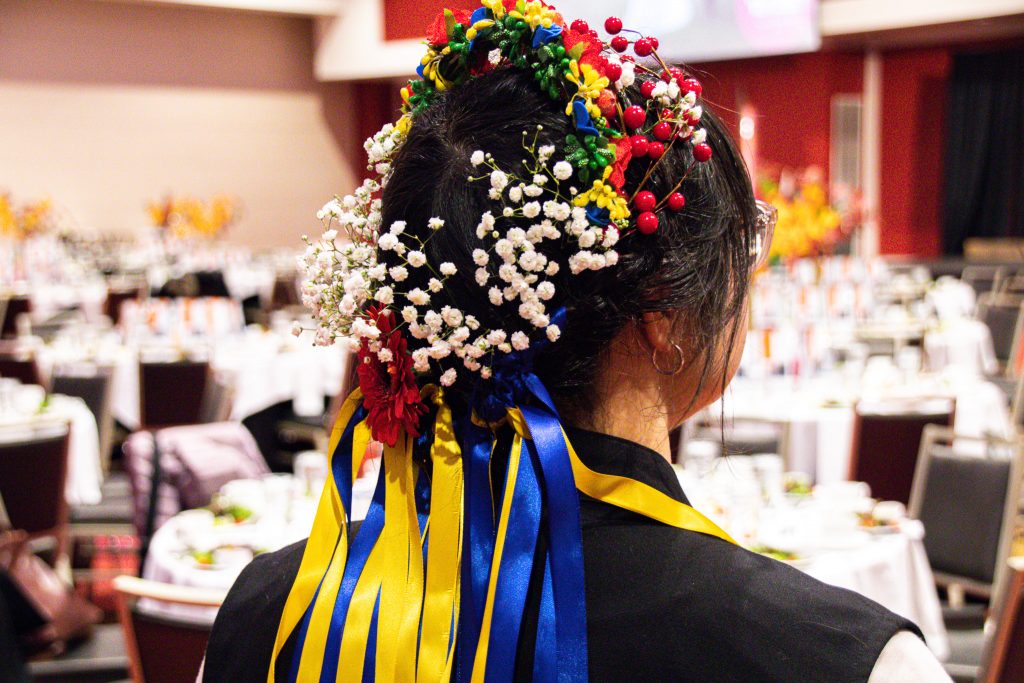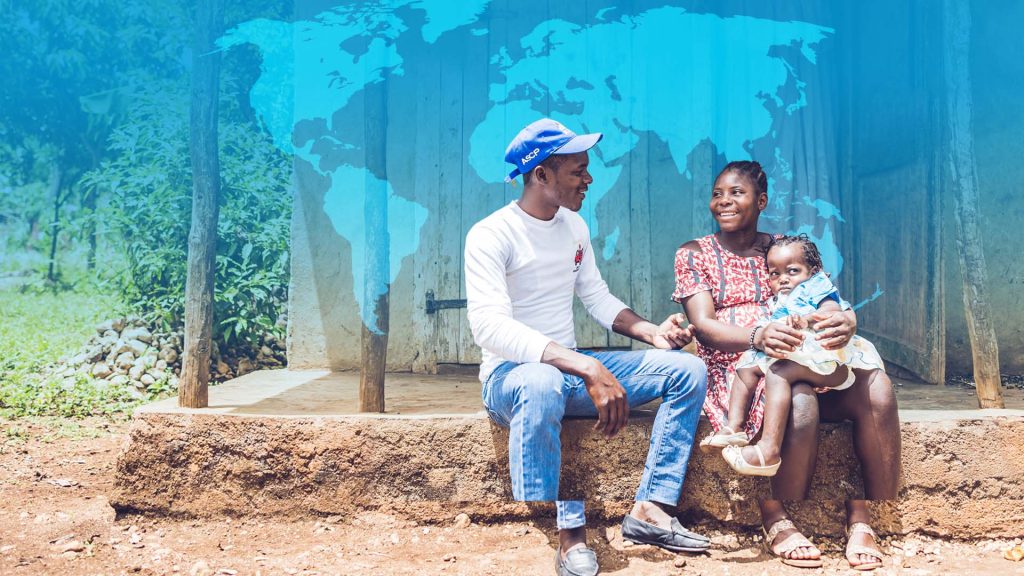Spokane Blog
Creative Solutions for Refugees in South America
Since 2017, Venezuelans have been fleeing the country, escaping a combination of hyperinflation, lack of food and water, and government violence. In response to this large influx of over six million refugees all throughout South America, Colombia and Brazil have adopted unique measures. Instead of resisting immigration, they’ve supported refugees and welcomed them with open arms. What kind of measures have Brazil and Colombia adopted and what can we learn from them?
Brazil
In 2018, the Federal Government of Brazil initiated “Operation Welcome,” a voluntary relocation program to support refugees and migrants coming into Brazil.
The basics of Operation Welcome
Operation Welcome rests upon three main ideas. First, the Brazilian government works to ensure efficient border management. As of 2023, there are approximately 800,000 Venezuelans who have entered Brazil. Operation Welcome provides refugees with proper reception, identification, and basic medical care. For support in managing the border, Brazil sought help from the international community, inviting the International Organization for Migration (IOM). IOM helps in verifying refugees’ and migrants’ identities and providing health checkups.
Second, Operation Welcome is concerned with welcoming refugees in Brazil’s border cities, as the name implies. Refugees are provided food, education, health and psychological care, and social protection.
Finally, a key step in the operation is the economic opportunity it provides. IOM works with the Brazilian government to search for job vacancies and arrange for transportation to various other cities in Brazil, where they’re matched up with a new job. Refugees are also encouraged to work in Roraima and become self-sufficient.

Brazil also provides a “Passport for Education,” a kit consisting of bilingual education booklets with cultural information about Brazil and guides on how to enroll in Brazil’s public schools. Even during COVID-19, Brazil was able to adapt its procedures to continue to support Venezuelan refugees and migrants.
As of 2021, Operation Welcome had managed to find work, schooling, and opportunity for over 256,000 refugees, of which 87% are families. While not yet managing to address all migrants, Brazil has accounted for over 32% of Venezuelans entering Brazil, almost a third.
What we learn from Brazil’s refugee policy
Instead of creating large, unsustainable refugee camps, Brazil has preferred to integrate Venezuelans into the local region. Rather than refusing to grant identification and work permits to Venezuelans, Brazil gave them the right to seek economic opportunity quickly. Instead of confining Venezuelans to the border, Brazil let them fully integrate into the country.
So, what is the key takeaway? Brazil didn’t resist Venezuelan immigration—they embraced it. Now, tens of thousands of Venezuelans have found new lives, are self-sufficient and independent, and contribute to the Brazilian economy. Brazil’s programs show firsthand how refugees are a valuable part of the community, and that if we embrace them, we can better address the displacement crisis.
Colombia
Colombia faces a more difficult-to-manage influx of refugees and migrants. It’s estimated that over 1.7 million Venezuelan migrants came to Colombia in 2017. However, just like Brazil, Colombia practiced a policy of integration.
Colombia invests in infrastructure that supports refugees and migrants.
Colombia had initially refused to build traditional refugee camps for fear of slowing down Venezuelans’ integration into the country. However, Maicao, the main region bordering Venezuela, eventually became overwhelmed, and the Colombian government was forced to call in UNHCR for support. Nevertheless, the camp in Maicao is far from a traditional refugee camp. In fact, its inhabitants are only allowed a temporary stay, typically for a few months, but are given all the tools necessary to stay in Colombia and find employment or move on to another country. Venezuelans are also encouraged to reunite and live with family members present in Colombia.
During this time, Colombia has worked to improve infrastructure in its border regions to support refugees. In 2019, it approved the “Second Fiscal Sustainability, Competitiveness, and Migration Development Policy Financing” (DPF) program. Its goal was to modernize government policies and extend the reach of Colombia’s National Employment Agency, allowing over 115,000 Venezuelans to access its services. It granted over 281,000 migrants a temporary stay status.
Colombia’s next project, “Improving Quality of Health Care Services and Efficiency in Colombia,” improved health infrastructure in border regions and enrolled over 200,000 Venezuelans in Colombia’s national healthcare programs.
Additionally, the “Colombia: Resilient and Inclusive Housing Project” improved housing infrastructure and access to housing for refugees and migrants.

Colombia helps refugees and migrants integrate
In 2021, Colombia extended temporary protected status for 10 years to over 1 million Venezuelans. Over half of the 1.7 million Venezuelan migrants in the country received access to social services and a pathway to a residency visa. This represents a major humanitarian act, especially since over half of these Venezuelans lack regular refugee status.
This move also gives Venezuelans the right to work in the Colombian economy. Up until that point, many Venezuelans were working in the informal economy, under the table. Overall, this move allowed Colombia to support the integration of Venezuelans and absorb the shock that this displacement represents.
The situation in Colombia shows the same positive benefits as in Brazil. Colombia’s policy of integration and support has allowed it to weather a much worse refugee crisis—Colombia faces almost a million more refugees and migrants than Brazil. However, these migrants have been able to find work and quickly resettle and contribute to the Colombian economy. When border regions became overwhelmed, Colombia invested money into these areas, not to further hamper border control, but to invest in the future and stability of migrants. Colombia has also embraced the displacement crisis with more positive results.
United States Policy and Title 42
Title 42 is a federal law that dates back to 1944. Back then, tuberculosis posed a major health threat to the country, and thus a law was passed to allow immigration authorities the right to deny or expel migrants that posed a health threat to the United States.
During the COVID-19 Pandemic, the Trump Administration invoked Title 42, expelling over 2.5 million migrants at the border in total. About half of all who were encountered at the southern border in the last year were expelled under Title 42. Therefore, Title 42 virtually shut down the United States’ entire asylum system.
However, Title 42 didn’t last forever. On May 11, 2023, Title 42 expired, and the Biden Administration had to figure out how to re-order the U.S. immigration system. In the months leading up to its expiration date, immigration authorities began to prepare for the resulting influx of migrants. Now that the border was accepting migrants again, many more would come.
The Biden Administration post-Title 42
In response, the Biden Administration announced in April 2023 the opening of new processing centers outside of the United States, organized by the IOM and the UN Refugee Agency (UNHCR). The first two centers will open in Guatemala and Colombia, with others expected to follow. In short, these processing centers aim to quickly screen migrants and asylum claims in Central and South America instead of having them arrive at the U.S. border. This new plan works in conjunction with Canadian and Spanish immigration authorities, with both countries saying they would accept migrants processed at these centers. If migrants at the border are found to qualify for asylum, they will legally be flown into these countries.
However, this new plan also means stiffer penalties. The Biden Administration plans to process asylum seekers at the border in mere days with the goal of swift deportations if migrants don’t meet the necessary criteria. Those who are expelled from the U.S. would be unable to return to apply for asylum for five years. The Administration also said that it plans to crack down on asylum-seekers who pass through another country without first seeking protection there.
Supporting Refugees and Migrants Works
Brazil and Colombia welcomed migrants and gave them opportunities to integrate into their local economy. They gave migrants who didn’t have legal status papers, supported their enrollment in schools, helped them find work, and treated them like valued community members. There’s always something to be learned from other countries, and while Brazil and Colombia have different economies, governments, security measures and other mitigating factors, their approach to the global displacement crisis provides unique insight. What might we take away from their approaches?
As we work to welcome refugees and migrants into our community, please consider supporting World Relief and our work.
________________________________________________________________________________________________________________
Antoine Herrbach is a 2023 Summer Intern for World Relief. He is a Senior at Gonzaga University, studying Political Science, History, and Economics.

Compassion: Moving into Suffering
Destruction. And hopelessness. Those were the two realities Deb Russell faced everywhere she looked when she deployed to Turkey with Crisis Response International in March.
On February 6, 2023, an earthquake of magnitude 7.8 hit southeast Turkey near the Syrian border. After the initial earthquake, aftershocks numbering in the thousands continued to rock the region.
When Deb arrived in March, she found endless piles of rubble. “Just dust really.”
Formerly beautiful marble homes and structures hit by earthquakes from two different directions had crumbled, trapping thousands of people inside. The piles of rubble became burial grounds for innumerable decaying bodies, irretrievable by search-and-rescue teams.
The government had sprayed the piles to prevent the spread of disease and to keep down the smell. An impossible task really, and Deb, along with many of her team, came down with some type of eye or respiratory infection when they returned home.
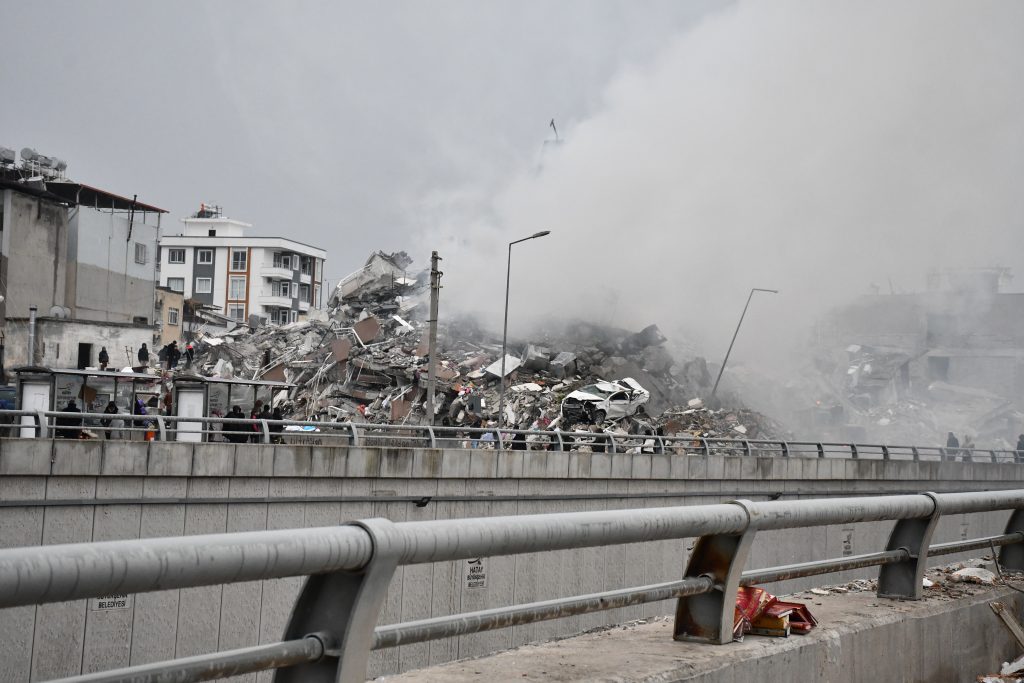
Deb Russell, a trained EMT, is used to moving into uncomfortable places. Her international work started, amazingly, with 9/11. “That was my impetus to go. I wanted to be part of the solution. I have the skills. I’m trained for it, and I want to help people when they’re in crisis.”
Prior to the earthquakes in Turkey, she also went to Greece during the Syrian refugee crisis of 2011. She stood on the shore, helping people from boats, administering emergency aid to the elderly, to pregnant mothers, to children. Holding and hugging, she prayed the Holy Spirit would transfer from her heart to theirs.
“It was like the end-times church. Christians coming from all over the world to extend hope and prayer and the love of Jesus… To proselytize is against the law, so you sing in whispers. I love being in the Body of Christ; unapologetic, unbound, candle-burning at both ends and dispelling darkness with love.
“The Turkish people had lost all hope,” Deb said. Many of them had never known poverty before, but quite suddenly, they were left without anything. “They didn’t even have rope to tie their tattered tarps.” Many of them believed their god was angry with them because of the corruption in the country and government. They would hug us and thank us, asking again and again, Why have you come? How is it the Christian Americans are here to help us and our own government has yet to bring assistance? They just couldn’t believe it. They felt deserted by everyone.
“Jesus brought me,” Deb replied, “and that’s how I found you.”
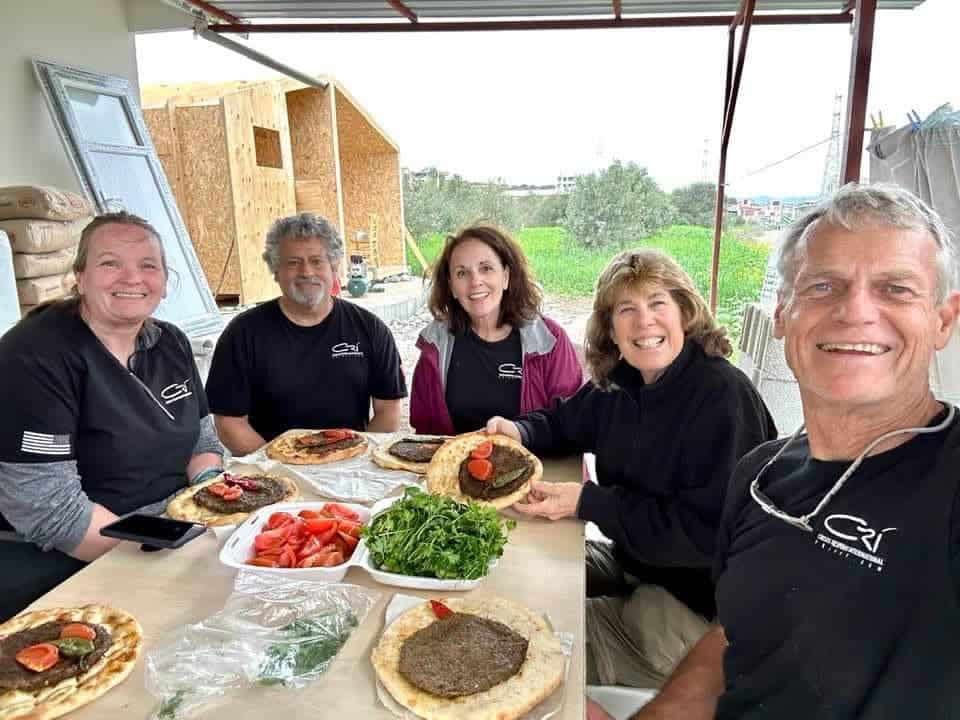
Deb and her team worked to build homes and temporary structures. They hauled and lifted and hammered – hard physical labor – but they also sat among the ruins and listened over tea or coffee.
“On every deployment, my heart is full yet shattered at the same time.” Shattered because of the suffering all around. “Everybody is vulnerable. Everybody is desperate. Sadness, depression and suicide fill the atmosphere. Yet, I also find myself full-hearted because it is obvious God is transforming and empowering lives as we extend our hearts to help. This is the expectation God has for us.”
What Is Compassion?
Compassion comes from the Latin “com” (with or together) and “passion” (suffer). To suffer with. (Merriam Webster) “Compassion and empathy both refer to a caring response to someone else’s distress. While empathy refers to an active sharing in the emotional experience of the other person, compassion adds to that emotional experience a desire to alleviate the person’s distress.”
Scripture tells us to be compassionate.
“Be kind and compassionate to one another, forgiving each other, just as in Christ God forgave you.” — Ephesians 4:32
“Be like-minded, be sympathetic, love one another, be compassionate and humble.” 1 Peter 3:8
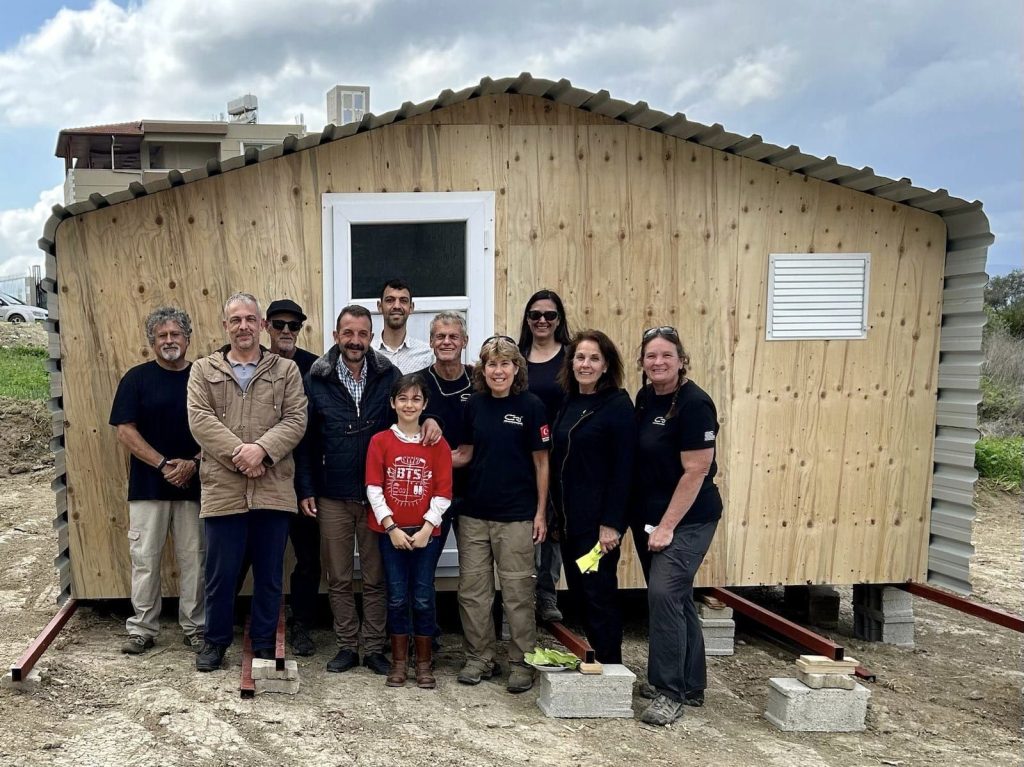
The Joy of the Lord
For two to three weeks at a time, Deb lived with what she could carry on her back – clothes, sleeping bag, toilet paper, Bible. And to prepare herself, she prayed. And prayed.
“Our western culture is so removed from tragedy. We can’t begin to relate to why a mother would want to put her child in a boat. They call the Aegean Sea ‘Death’s Grip.’ So many don’t make it.
“We don’t want to suffer – even vicariously – but God keeps putting stuff in front of me. He wants me there. He opens doors. He makes it amazing. When he says, ‘Jump,’ I jump. When he says, ‘Duck,’ I duck. I’m walking with God. I’m in rhythm with him.
“I have to experience God like this. It enriches my soul, my life.”
And, in the process, Deb says, she finds commonality with “the others.”
“People are harder to dislike, avoid or disregard when you find common ground. They, too, love their children; they want them to be safe. They are discouraged and desperate for help. No different than you or I. If I were in dire circumstances as they are, I most certainly would want someone to extend heart and hand.
“Caring for others opens up things in your own life. I move into suffering because I know I will find Jesus there.”
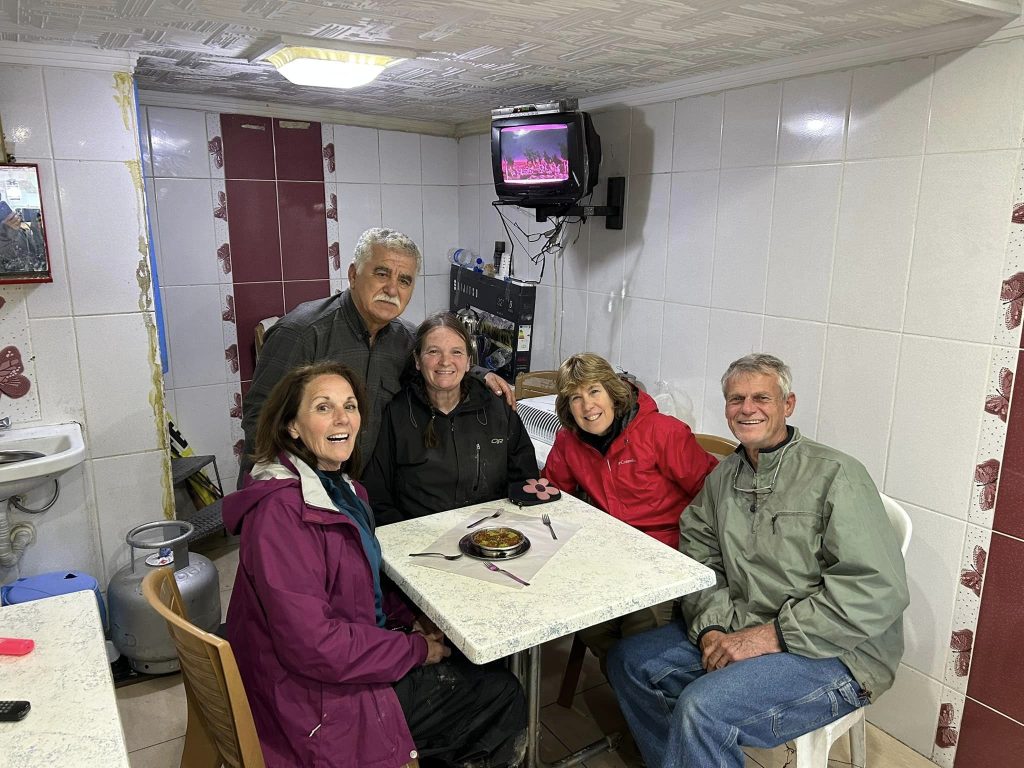
Not everyone is called to go physically into war-torn, earthquake-ravaged countries to administer aid, but everyone is called to care, to be compassionate. What is your role?
Raise Your Hand if You’re a Mama!
By Lisa Zanoni, World Relief Spokane Relationship Manager
Raise your hand if you are a mama! Or have a mama. As a mother, or parent, we want our children to be safe and happy. Many of us have made the decision to move away from our family. The reasons are vast: we fall in love; we get a job transfer; we go to college and just never return to our home. I am a southern gal, born and raised in North Carolina. In southern culture, children, especially daughters, don’t venture far from the nest. I am an exception. I fell in love, married a man, and moved to Spokane 29 years ago. I know I ripped my mama’s heart out of her chest. The saving grace was the knowledge that I knew I would be visiting my family frequently. I had, and I still have, the freedom to buy a plane ticket and go home anytime I please.
But what if seeing my family wasn’t even remotely a possibility? What if that tear-laden, heart-wrenching goodbye in 1994 was the last goodbye?
I want to introduce to you Hamsa, Masar, and their three precious daughters. Here is her story of heartache, success and a beautiful reunion!
“My husband, Masar, 14-month-old daughter, Lina, and I moved to the United States in January 2013 as immigrants from Iraq through a program called *Special Immigrant Visa (SIV). Masar and I both worked as contractors for the U.S. government as interpreters. Subsequently, our lives were under threat during the widespread civil war and the harsh service conditions in Baghdad. Threats on our lives for serving with the U.S. military had become too common. The decision to leave Iraq was made when we came home to a gift-wrapped bullet on our front porch. Knowing everything and everyone we would leave behind; this was not an easy decision to make.
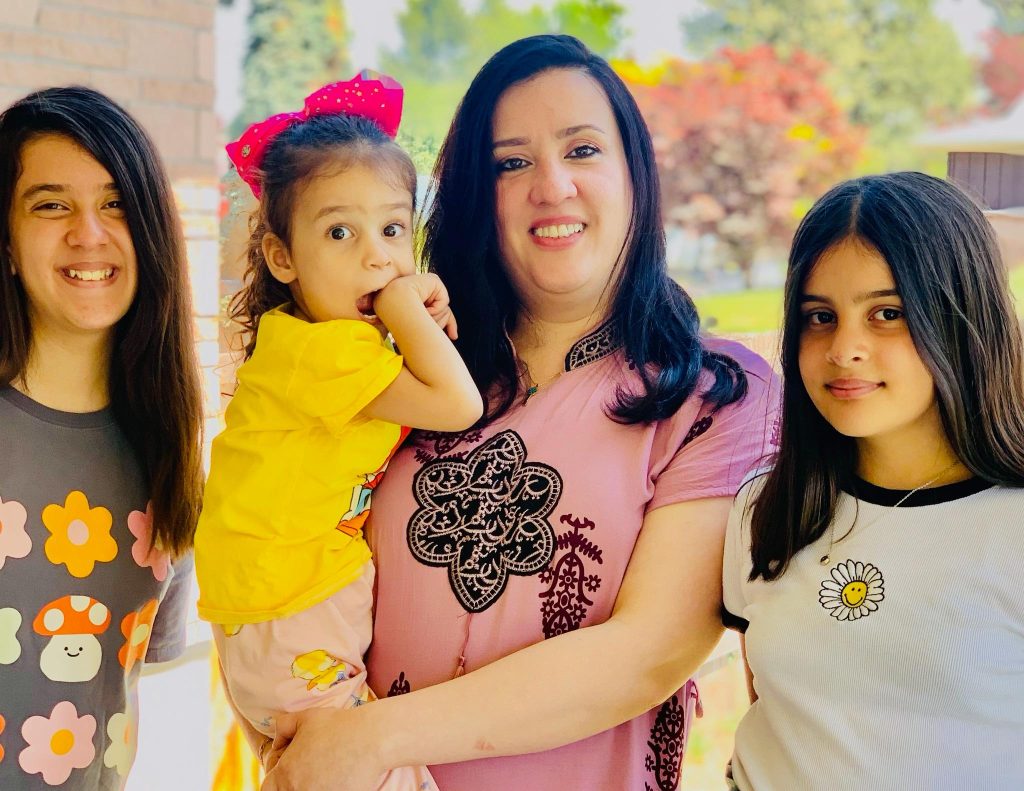
Due to the lack of security for our family, and fear of the retaliation that might be taken against my family, I was unable to tell anyone about my plans. I couldn’t even tell my mother. Keeping that secret from her was extremely difficult, but I knew that in order to keep her and my siblings safe, I dare not say a word. Therefore, I told my mother a week before my flight to the United States. We cried as we held each other close, knowing full well that this was probably the last time we would see each other, hug each other. The last time she would see her granddaughter. She was not ready for the separation, but at the same time she wanted a safe and better life for me. She knew she had to let me go in order for me and my little family to live. The day I said goodbye to her and my four siblings was one of, if not the, hardest day of my life.
We flew to US in January 2013, and I still vividly remember the day we arrived in Spokane ten years ago. It felt like magic where Christmas decorations were still being displayed everywhere. I was as excited as a child about our new life! World Relief and especially Lisa West-Zanoni played a great role in my life here from day one to this moment! They assisted us in the resettlement process and helped us to adapt to the new environment. In fact, World Relief staff treat immigrants and refugees as family members or friends. This had a huge impact on me and my family when we arrived to Spokane. Therefore, I am thankful to them. I also would like to give special thanks for Lisa West-Zanoni who was and is still there to support and encourage me as wonderful mother, sister, and friend!
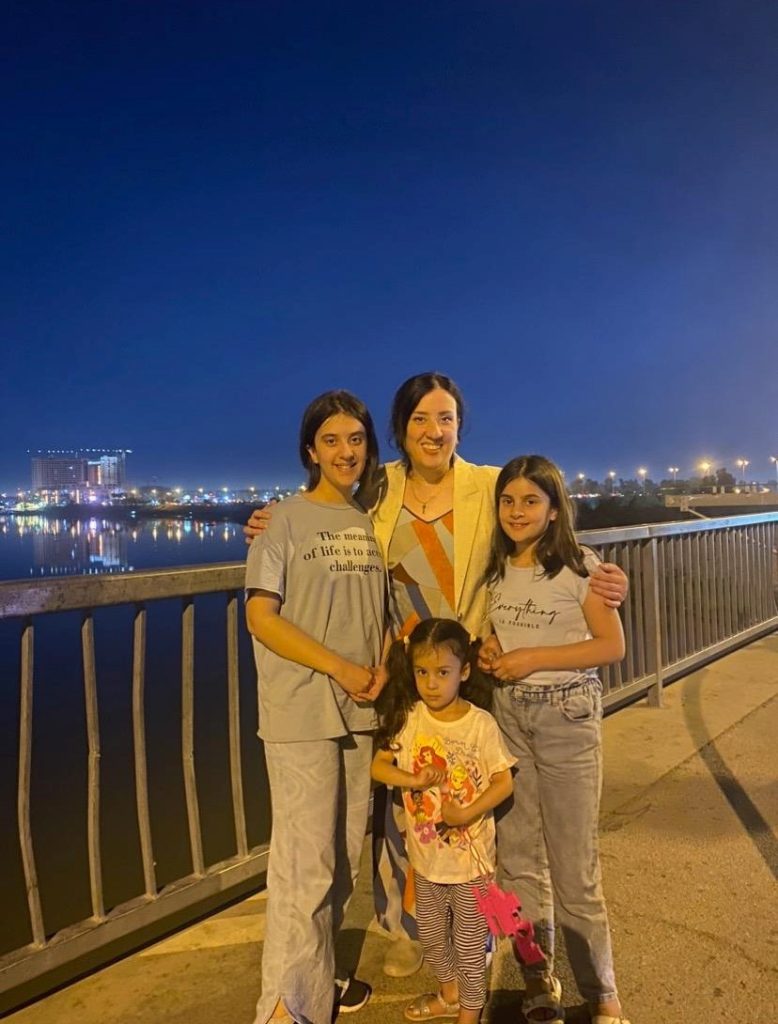
My life in the United States has been challenging and blessed. I encountered multiple obstacles in my life and education journey. I got discriminated against because of the hijab/head scarf that I used to wear. I once was told to speak English at a bus stop. This did not prevent me from going to school. I hold a bachelor’s degree in English from University of Baghdad, and I was determined to continue my education in America and get a job to serve my community. I enrolled in the Vascular Ultrasound Program, and soon after, I got my US citizenship and graduated with an AAS degree! And I have been working in the field for about five years now. Masar and I bought our first house, and our daughters are happy and safe.
Despite our wonderful lives in Spokane, during the past decade, my family was ever present in my thoughts and heart. As primary SIV holder, my husband was able to bring his family to the U.S. As wonderful as it is to have my in-laws here, I was still so desperate to see my mother and for my mother to see her granddaughters. She had not met the two younger girls who were born in Spokane and had watched Lina grow up via FaceTime. I invited my mother and sister to come and visit me on a visitor visa in 2022. Unfortunately, they got rejected. After much discussion with my husband and reports that Baghdad had increased security measures in place, I decided to go to Baghdad and visit them in April 2023. However, I was nervous to go back. Would I be safe? Would I put my family at risk? My longing to see my mother, siblings, and relatives was too overwhelming, and I decided I would trust reports I had heard and take that chance.
The moment I stepped off of the plane and into my mother’s arms confirmed that I had made the right decision. I had four weeks to make up for ten years of separation, four of the most joyous weeks of my life. Very quickly my security fears abated, and instead, stories of missed birthdays and weddings were shared and priceless memories were made. I spent a lot of time just sitting with my mother, cherishing every moment with her. As I closely examined her face and hands, I thought to myself how she had aged. At times, I felt cheated for the hand that had been dealt me and that I was missing these years with her. I knew that she would have it no other way. She had peace knowing that I was safe.
My mother is an amazing cook, and we spent a lot of time enjoying her food. I felt safe as I walked around Baghdad and was thrilled to see rejuvenation occurring. My heart was full as I watched my daughters play with their cousins they had never met. I was thrilled for them to experience their culture that was all around them! It was good to be home and to be surrounded by familiar things that I have missed. But especially to be with my mother.
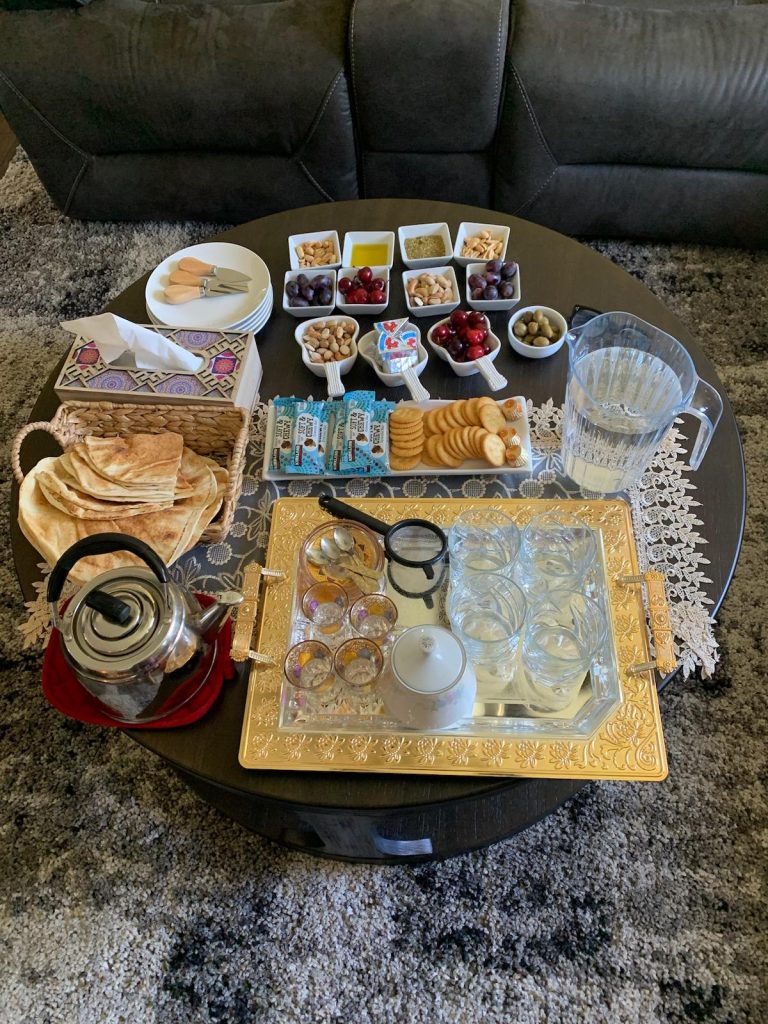
Those four weeks passed far too quickly. There wasn’t enough time. There is never enough time when it comes to our loved ones. The goodbyes this time although difficult, were not hopeless as before. As I left Baghdad and headed to my U.S. home, I was filled with love and encouragement, knowing that this was not the last goodbye.
I don’t know what the future holds for my family, but I am going to do my best to make this trip every couple of years. War, fear and persecution can tear our lives apart, but nothing will ever separate my mother’s love from my heart.
As we discuss the lives of those from Iraq and their struggle, please consider making a donation to support those coming to Spokane for a new life.
*SIV is a program for Iraqi and Afghan nationals who served alongside or worked with the U.S. government. SIV recipients legal permanent residents of the United States.
10 Books to Read This Summer
If you’re anything like me, you love a good book list — especially for summer. The sun is brighter and the heat invites us to bask in the delight of a season that reminds us to rest and make space for fun. I recently asked my co-workers at World Relief what books they’d recommend for our summer reading list and today, we’re sharing a few of those recommendations.
Whether you are looking for a book to read poolside, on your next flight or at home in the cool evening, we hope this list of varied experiences and notable voices helps engage your mind and your heart this summer!
“We read to know we aren’t alone.” C.S. Lewis.
- Americanah by Chimamanda Ngozi Adichie – Chimamanda’s fictional story about a Nigerian couple separated by war, forced to take separate paths in completely different countries while boldly commenting on today’s realities in race and class promises to leave you different than when you began it. It’s no wonder this book made it onto countless Best Book of the Year lists.
- Beyond Welcome: Centering Immigrants in Our Christian Response to Immigration by Karen Gonzalez – Former World Relief staff member, Karen Gonzalez reminds us how centering immigrant voices when discussing immigration is not only important but critical to following a gospel-centered approach to how we advocate for, vote on and learn about the marginalized. A must-read for anyone looking to take their advocacy and solidarity to a deeper level and a top resource we recommend in learning about refugees and other immigrants.
- Creating Cultures of Belonging: Cultivating Organizations Where Women and Men Thrive by Beth Birmingham and Eeva Sallinen Simard – Co-written byWorld Relief’s very own, Eeva Sallinen Simard, this book explores how faith-based organizations can create and sustain a safe work environment for a diverse workforce to flourish. With practical steps and solutions, Creating Cultures of Belonging will inspire you to bring change and best practices to your own organization.
- Everything Sad is Untrue by Daniel Nayeri – This young adult autobiographical novel has won countless awards for its immense heart and masterfully written storytelling. It tells the story of Daniel and his family’s journey as Iranian refugees seeking asylum in the U.S. after his mother embraces Christianity. Daniel shares what it’s like to cope with forming his identity while navigating a new culture in a new world.
- His Testimonies, My Heritage: Women of Color on the Word of God by Kristie Anyabwile – This inspiring collection of stories written by women of color from different cultural backgrounds will leave you in awe of God’s intentional purpose for his daughters. As a Latina Christ-follower, these words ministered to my whole self and reminded me of how a good God perfectly created us to do his work in a multicultural and diverse world.
- Social Justice for the Sensitive Soul by Dorcas Cheng-Tozun – Often times when we think of advocacy or working in social justice, we think of loud marches or individual voices speaking out to the masses. While that is a small part of it, Dorcas highlights the vital role the quiet observers and thinkers play in the pursuit of justice while freeing us from the myth of an ideal activist.
- The Stranger At Our Shore: How Immigrants and Refugees Strengthen the Church by Josh Sheriff – Josh shares his personal story of leaving Islam as a child into a new life in Christ while speaking into a new vision of what missions can look like and discipling to people different from yourself. I’ve had the pleasure of witnessing Josh’s commitment to God’s people when he was a pastor at a local church in Chicago. I know that anyone who reads this book will glean so much wisdom from his experience and devoted heart.
- The Next Worship: Glorifying God in a Diverse World by Sandra Van Opstal – Worship does not look any one specific way. If we are joining together in church with God’s creation in mind, then our worship is full of all tribes and all nations- honoring the many ways he has made us to glorify him. Sandra dives deep into what that looks like and her expertise will convict you into bringing this wisdom to your church, your life and your own worship.
- This Here Flesh by Cole Arthur Riley – This book of reflections and life lessons from Cole’s family history while written in prose, is pure poetry. Cole’s writing will remind you of the beauty of the written word and her insights will serve as a balm to your soul. If you only read one book this summer, let it be this one.
- Thou Shalt Not Be A Jerk: A Christian’s Guide to Engaging Politics by Eugene Cho Gear up for the upcoming election season by learning how to engage in healthy and graceful (God-centered) political discussions. Eugene’s book boldly confronts the challenges we face today in talking about why politics matter, how to live out your convictions while loving the very people you disagree with and how those convictions should be Bible-centered vs. directed by political party agendas.
Enter the Summer Book Giveaway
This summer we are giving away 3 books from the list above. Fill out your information below for a chance to win!

Jessica Galván is a Content Writer at World Relief. She is passionate about storytelling and amplifying diverse voices to reveal the beauty of God’s creation. She is also the Editorial Director for Chasing Justice and prior to World Relief, she was a freelance writer and editor for a variety of clients in publishing, most recently Penguin Random House. When she isn’t wordsmithing for the pursuit of faith and justice, she is spending time with her husband and their 3 children in the Houston, TX area.
Left in Limbo – The State of the Afghan Community after the U.S. Military Withdrawal
On August 15th, 2021, years of preparation came to a close as the United States military began to withdraw from Afghanistan. Intelligence specialists estimated that it would take a minimum of six months for Kabul to be captured by the Taliban. It took them 11 days. Thus began two weeks of chaos.
On August 31st, the U.S. declared its withdrawal complete and closed its embassy in Kabul. As part of its withdrawal, the U.S. military helped evacuate 78,000 Afghans out of Afghanistan. This rushed and dangerous evacuation left tens of thousands of Afghans behind and tore families apart. Today, the Afghan community in and out of the U.S. is forced to deal with long and confusing procedures. All they want is to see their family and the guarantee of a stable future, but this is much easier said than done.
What has been going on with the Afghan community since the withdrawal? Here is an overview and timeline of events so we can better understand and advocate for the Afghan community.
U.S. Bureaucracy Struggles to Keep Up Post-Withdrawal
On September 3rd, the Department of Homeland Security (DHS) announced “Operation Allies Welcome.” This new program was meant to resettle and support Afghans involved in the large-scale evacuation effort. Due to this new operation, tens of thousands of fleeing Afghans were granted humanitarian parole.
What is humanitarian parole and how was it used in Afghanistan?
Humanitarian parole is a way for the government to protect foreign nationals in emergency situations. It serves as a rapid way to let someone stay in the United States and work there without going through the complicated bureaucracy of the immigration system. United States Citizenship and Immigration Services (USCIS), the organization responsible for managing immigration status, quickly granted parole to 74,500 of the 78,000 evacuating Afghans. Due to the chaotic and urgent nature of the situation, USCIS did not have many other options.
On average, humanitarian parole lasts two years. During this time, parolees cannot be deported, and they have the right to work. Once those two years are up, they are either sent back to their country, or USCIS can extend their parole. Since August 2021, thousands of Afghans have been stuck waiting, trying to rebuild their lives between this two-year status. They simply hope that they won’t be sent back.
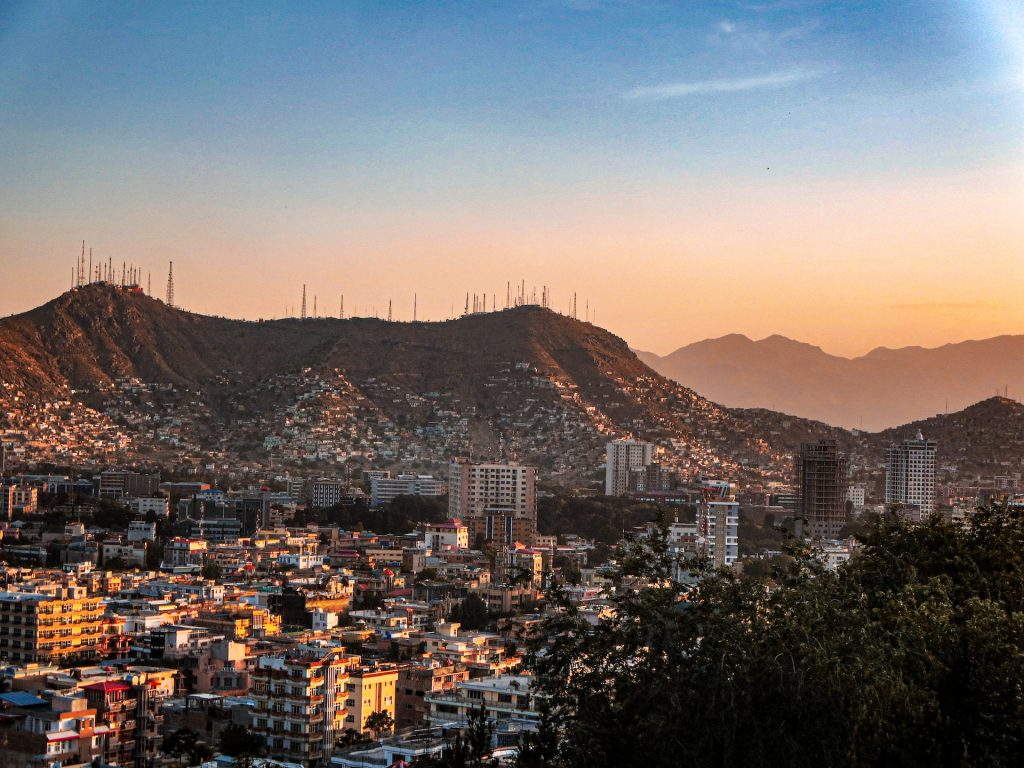
How did USCIS manage the crisis after the withdrawal?
Once the Taliban took back control of Kabul, USCIS began receiving an overwhelming amount of parole requests.
USCIS was not prepared to process Afghans that weren’t included in the initial evacuations. Those that were left behind had to wait. In September, their calls for help were put on hold. It took USCIS four months to adapt its processing procedures.
From January 2020, as the U.S. government began preparing its evacuation, to April 6th, 2022, 8 months after the withdrawal, USCIS received 44,785 total applications for parole. They processed 2,633. They accepted only 114. In total, because of the $575 fee attached to the application, USCIS received over $19 million.
As of 2023, this number of applicants has risen to 49,000 with a total of 410 approved. To make matters worse, about 70% of Afghans applying for parole are still within the country. The U.S. government no longer grants parole to those at the border– they must be outside of the United States. Every extra day they wait for a decision is a day they live under the threat of death.
Special Immigrant Visas
Certain Afghans can apply for Special Immigrant Visas (SIVs). An SIV is a special visa given to Afghans who put themselves under a security risk to interpret or otherwise be employed by the U.S. military. With this visa, Afghans can seek permanent residence and citizenship in America. Often, Afghans who qualify for SIVs are in dangerous situations. The Taliban views them as traitors and many SIV-eligible Afghans have been killed or are threatened by the Taliban.
The Problem with SIVs
The SIV program is in as much disarray as the parole program. Even before the U.S. withdrawal, there was a backlog of approximately 18,000 SIV applications. As the list kept growing, the understaffed Afghan SIV program couldn’t keep up. Internal reports found that it takes roughly 734 days to process an SIV application as of 2022— just over two years.
The latest report from the Department of Homeland Security found that there were about 74,000 applicants waiting for a decision on their SIV status. Even worse, these applicants are in the very early stages of the application process. They are waiting for the Afghan Chief of Mission to approve their papers and confirm that they did work with the U.S. military– step number four of an 11-stage process.
Additionally, there are only 17,000 SIVs left to give out. Like other immigrant visa programs, the State Department puts a cap on the number of visas it can give out. Once USCIS reaches this cap, there is no way for additional Afghan allies to benefit from this program. However, the State Department can raise the cap, which it has previously done. In December, the State Department added 4,000 visas to the total. Nevertheless, we are still far away from addressing the tens of thousands of Afghan allies.
SIV Applicants Face Another Issue
The SIV application process holds another hurdle. On August 31, 2021, the U.S. embassy in Kabul suspended operations. Therefore, SIV applicants are forced to leave the country; after a certain point in the process, they must show up at a U.S. embassy in person for an interview. Leaving Afghanistan can prove to be quite difficult, especially for an SIV applicant who may already be threatened by the Taliban.
While many SIV applicants were paroled out of Afghanistan during the initial evacuation, many were left behind. So many allies who put their lives in danger were simply abandoned.
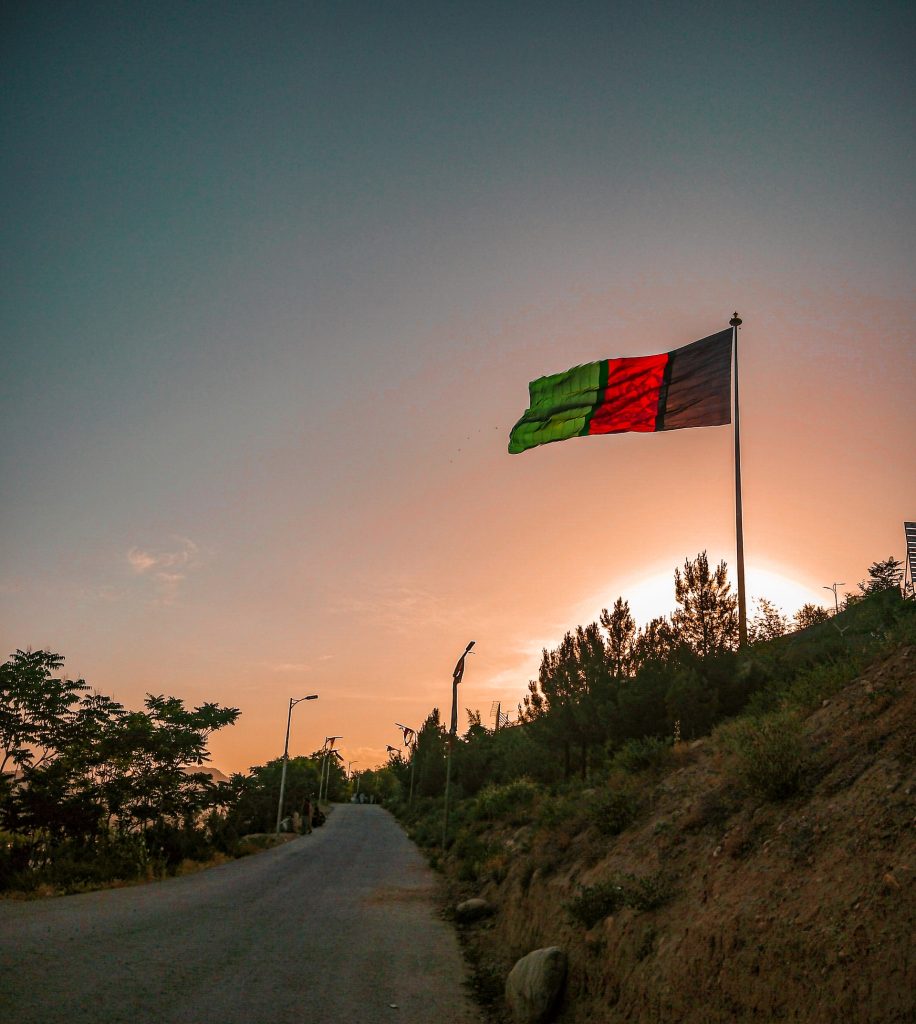
Afghanistan Becomes Eligible for Temporary Protected Status
In March 2022, USCIS announced the designation of Afghanistan as TPS-eligible. Temporary protected status (TPS) is similar to humanitarian parole. When a country is facing conflict that would make it unsafe for its citizens to return, the secretary of the Department of Homeland country can declare that country and its citizens eligible for TPS.
Then, USCIS hears cases from different eligible individuals and grants them TPS. It protects them from deportation for 18 months and grants them authorization to work in the United States. It’s very common for USCIS to extend TPS, just as it can extend parole. However, just like parole, there is no path to citizenship or permanent residence in the United States. It’s another short-term solution.
It’s important to note that TPS only applies to foreign nationals who are present in the United States. Afghans outside of the U.S. can’t apply for TPS. Only those in the country before March 15, 2022 – the date Afghanistan became eligible – can receive this status. While great for the Afghan community in the U.S., those left behind can’t benefit. Their only options are to apply for backlogged parole, SIV status, or asylum.
Afghans can also have multiple statuses at the same time. The majority of Afghan TPS holders are also parolees. While it may seem redundant to be a parolee and TPS holder at the same time, it grants Afghans extra protection from deportation.
Family Reunification
In January 2022, the State Department announced a new form that would allow Afghans to apply for family reunification. There are procedures for SIV recipients to have their families join them, but these channels are also significantly backlogged. However, for those granted humanitarian parole or TPS, there was no way to reunite with their families until January – unless their family members were also individually granted an immigration status. This new form allows the applicant to reunify with their spouse and unmarried children under 21.
Regardless, Afghans must once again face the bureaucracy of our immigration system just to see their family again. Who knows how long it could take, or what could happen in the meantime?
Extending Humanitarian Parole
This June, USICS announced a new program to let Afghans apply for re-parole, extending their humanitarian parole and letting them live in the U.S. for another 2 years. They’re actively examining each case and seeing if Afghans are eligible for re-parole. This time, Afghans are also exempt from the $575 fee. While this is a good step in assuring that Afghans can stay in the U.S., it’s another short-term solution.
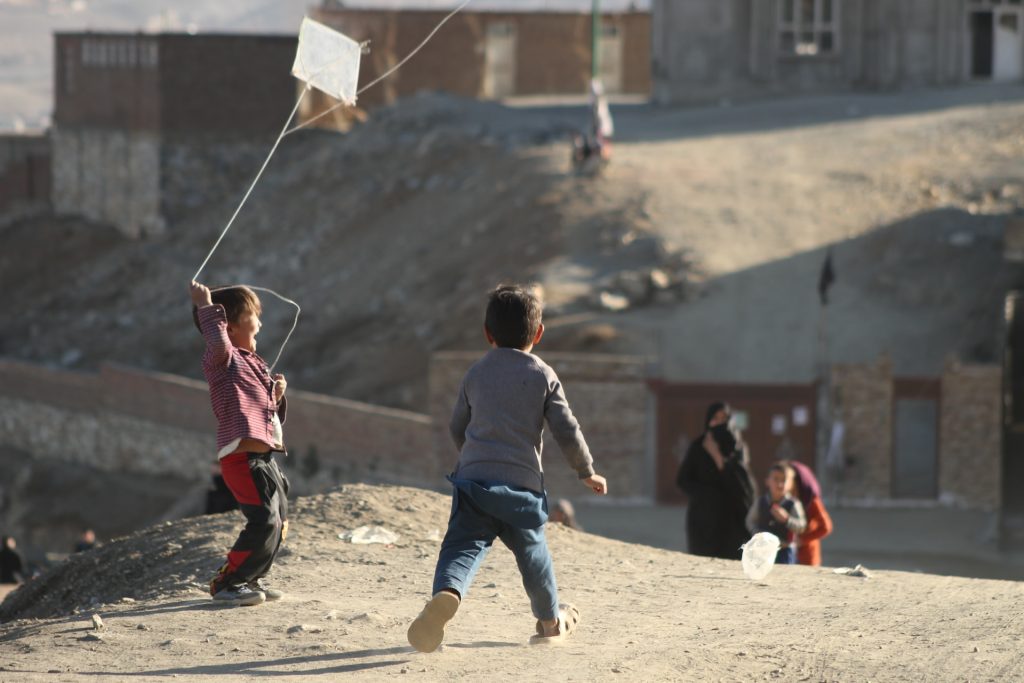
What Does the Situation Look Like for the Afghan Community Now?
There are Afghans who have been U.S. citizens for years or are already lawful permanent residents. They came to the U.S. long before the military withdrew from Afghanistan. Their family and loved ones are stuck waiting for a decision on their parole or SIV case and fear for their lives.
There are Afghans who were granted parole and TPS. They just began their application to renew their parole status for another two years. While they can live and work in the U.S., they have no guarantee of what their future will look like in two years— they have no path to citizenship. Those who qualify for SIV or asylum brave our immigration system and its eternal wait times. They’ve applied for the new family reunification program and wait to see if they’ll be reunited with their families back home.
As the U.S. government rolls out short-term after short-term solution, Afghans have no other choice but to wait—in limbo.
Hear the stories of Sayed and Hashemi, two Afghans living in Spokane.

Antoine Herrbach is a 2023 Summer Intern for World Relief. He is a Senior at Gonzaga University, studying Political Science, History, and Economics.
What is the Displacement Crisis?
Today, about 6 million people live in refugee camps. They’ve managed to flee from the risk of persecution in their home country, and now they are forced to wait. Often, conditions in camps are less than subpar. Access to water and healthcare is difficult, and refugees are reduced to living in tents for years — or even decades at a time. Entire families and generations have been born and grown up inside camps originally meant for temporary housing. It’s often difficult to obtain citizenship or work authorization, and millions of refugees are stuck in limbo, hoping for a chance at a new opportunity.
The latest figures from UNHCR, the United Nations Refugee Agency, show that there are about 103 million displaced people worldwide in over 134 countries. Projected figures estimate that the number of displaced people will grow to 117.2 million in 2023. What is displacement and how does it affect our communities? Here is an overview of what it means to be displaced, and why we should care.
There are many different categories of displaced people.
Let’s start with the different legal statuses of displaced people. You may have heard terms such as asylum-seeker, refugee, or internally displaced person. These different statuses each have a strict legal definition, and each is given different rights and protections.
What is an asylum-seeker?
An asylum-seeker is a person who has left their country of origin and is seeking protection in another country. However, they have not yet been legally recognized as a refugee and are waiting for a legal decision on their asylum claim. When it was founded, the United Nations declared that seeking asylum from persecution is a human right, and doing so is clearly outlined in the Universal Declaration of Human Rights. All people, no matter their origin, have a right to live in safety.
The latest figures show that roughly 4.6 million asylum-seekers are waiting for a decision on their asylum claims. In the United States, the asylum process can take from around 6 months to several years.
What is a refugee?
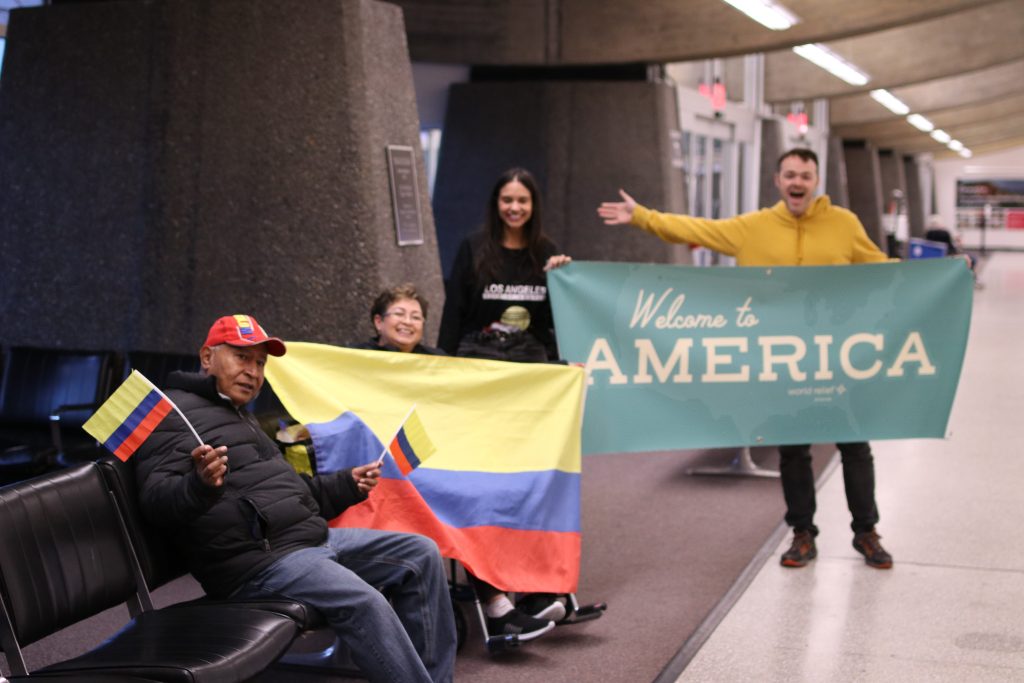
As of today, there are about 32.5 million refugees worldwide. The term “refugee” was defined by the 1951 Refugee Convention. Refugees are people fleeing conflict or persecution. They are unable or unwilling to return to their country of origin based on a fear of persecution based on five categories: race, religion, nationality, political opinion, or membership in a particular social group.
Once a person is granted refugee status, they are granted certain legal rights, again outlined in the 1951 Refugee Convention. For example, one key principle is the idea of non-refoulement. It ensures that states cannot send a refugee back to a country where they face serious threats to their human rights.
What is an internally displaced person?
Internally displaced peoples, or IDPs, are those who have been forced to leave their homes due to armed conflict, general violence, or human rights violations, yet have not crossed an international border. IDPs may not have the financial means to undertake such a journey. Many suffer from health conditions that render them unable to flee the country. Some IDPs are surrounded by conflict and stuck in a war zone.
IDPs face similar challenges to refugees and asylum-seekers, yet do not enjoy the same legal protections. They are often located in areas where aid organizations cannot reach them. Their national governments are responsible for their protection; yet these same governments may be unable to grant them protection or may simply refuse to do so.
While refugees most commonly make headlines, there are currently 70.1 million IDPs, more than twice the number of refugees.
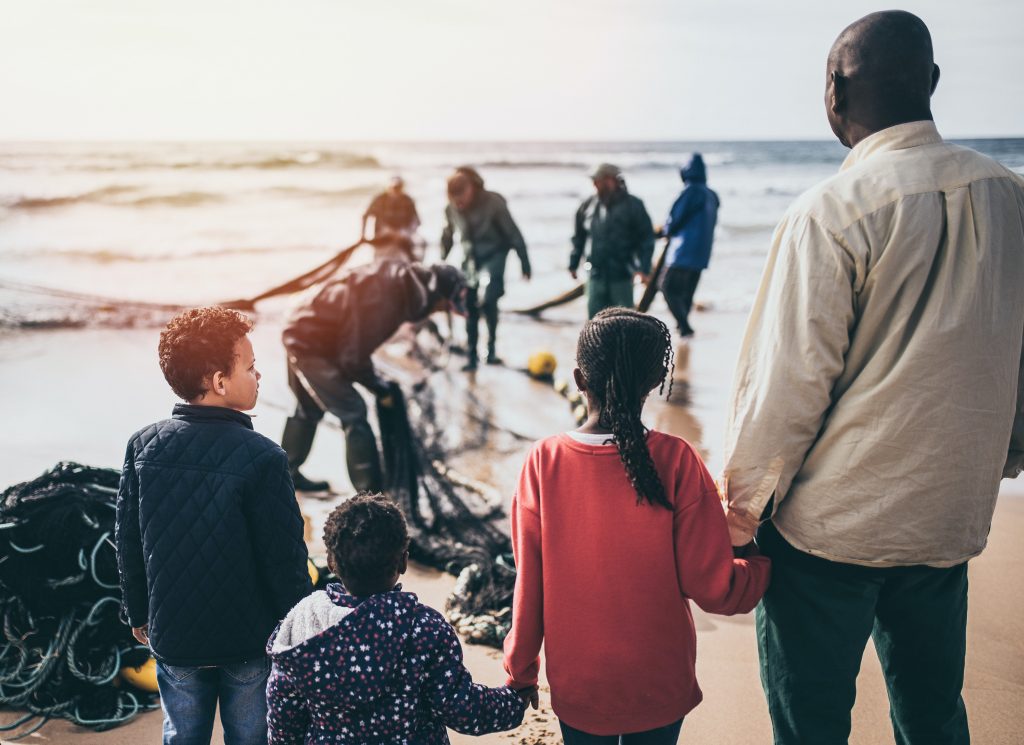
What is statelessness and how does it relate to displacement?
Statelessness can hinder freedom of movement, the ability to buy property, vote, open a bank account or even get married. Moreover, stateless people are excluded from government initiatives. Recently, many stateless people were left out of COVID-19 vaccinations or relief packages — they were considered invisible to governments.
Currently, there are around 700,000 Rohingya, an ethnic group which the state of Myanmar refuses to recognize and grant citizenship to. Rohingya are asylum-seekers and refugees like many others; yet they lack birth certificates, access to healthcare, and strict restrictions on their freedom of movement.
Other people in need of international protection
This category was created by UNHCR in 2022 and includes people who are outside of their country of origin, yet don’t qualify for typical refugee status. These people likely need international protection, especially protection against forced return, including access to basic services on a temporary or long-term basis. UNHCR estimates that there are about 5.3 million in need of other international protection.
How do countries address those left out of the refugee framework?
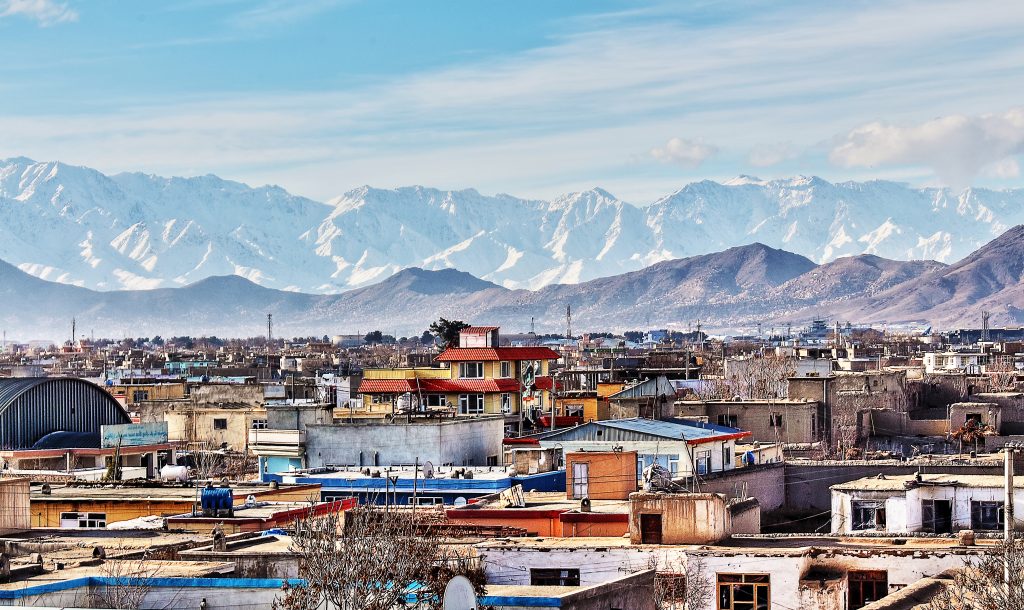
Modern displacement crises have put stress on the refugee framework, showing how its narrow definition, while important, can sometimes leave out equally vulnerable populations.
For example, the majority of displaced people in Venezuela and Ukraine do not qualify for refugee or asylum status, instead relying on temporary protection statuses or humanitarian parole – these statuses grant the recipient the right to live and work in a specific country, but only for a limited amount of time. However, countries can extend these statuses indefinitely.
The sudden withdrawal of U.S. troops from Afghanistan prompted the government to grant Afghans humanitarian parole to temporarily reside in the United States.
Addressing the displacement crisis means understanding its root causes.
Understanding the root causes of displacement can help us respond better to people’s protection and assistance needs. It helps us prevent crises which cause families to risk their lives in pursuit of safety. It ensures that today’s displaced will not be displaced again.
UNHCR splits factors leading to displacement into two major categories: drivers and triggers. Drivers are the underlying structural factors that combine, causing a crisis to erupt. For example, there may be:
- Environmental drivers, such as desertification, or climate change.
- Social drivers, such as limited education opportunities or inter-communal tensions.
- Political drivers, such as poor urban planning or corruption.
- Economic drivers, such as poverty, lack of access to markets, or lack of economic mobility.
Secondly, triggers are events precipitated by drivers that leave people little choice but to flee their homes. Armed attacks, natural disasters, or forced eviction are examples of triggers. Triggers themselves may not necessarily lead to displacement; however, their combination with various drivers create hostile and threatening situations. Triggers can also combine or occur in succession, creating a more complex situation.
Let’s examine a few situations around the world and why displacement is happening there.
Venezuela
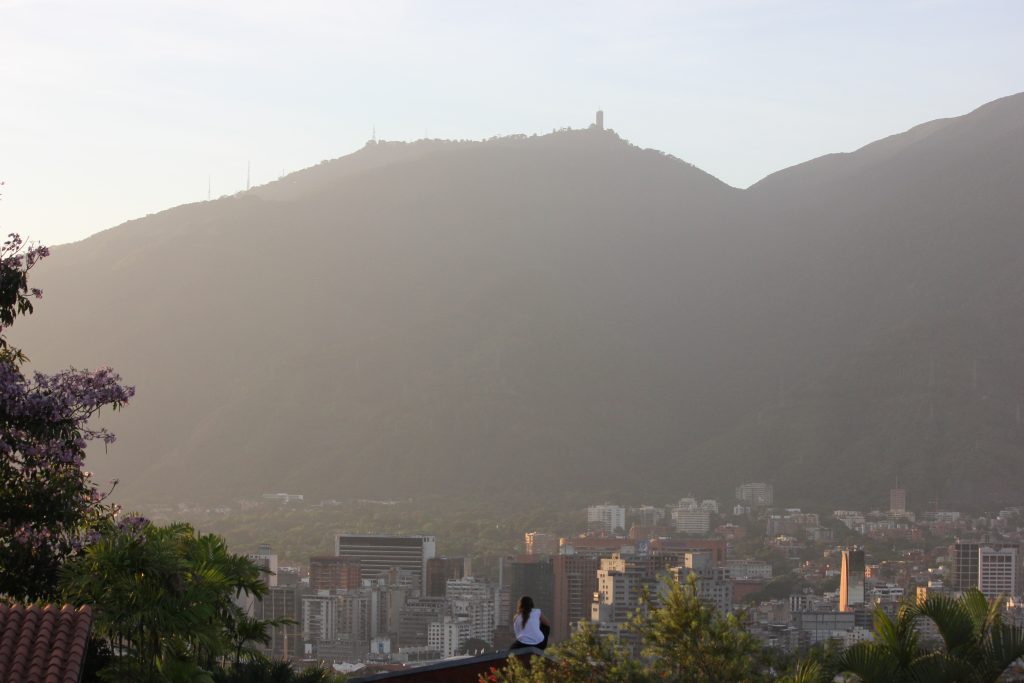
The displacement crisis in Venezuela can be traced back to the early 2010s, beginning with Hugo Chavez’s presidency. While rising oil prices enriched Venezuela and emboldened its economy, the lack of long-term economic planning became a main driver of future displacement. Today, Venezuela is marred by hyperinflation, and its population struggles to afford basic necessities. In 2018, inflation in Venezuela exceeded 1 million percent. Persistent economic sanctions have added to the already difficult situation in Venezuela, leading to many shortages of food and medical supplies.
Under Nicolas Maduro’s regime, the government began to crack down on anti-government demonstrations, resulting in many extrajudicial killings. In 2017, the UN reported over 5,287 killings by the Venezuelan National Police’s “Special Action Forces.” An additional UN report found that there were 1,569 killings in the first six months of 2019 alone. The Maduro regime has also made it exceptionally difficult for humanitarian agencies to operate within Venezuela, denying much aid to the starving population.
The COVID-19 Pandemic worsened health and safety conditions for the country, as Venezuela was not equipped to deal with the necessary health measures and lacked access to vaccinations or proper health services.
Half of the Venezuelan refugee and migrant population displaced around South America cannot afford three meals a day and lacks access to housing. Hundreds of thousands of Venezuelans remain without documentation or permission to stay in nearby countries, denying them access to basic rights.
Six years ago, Morella Perez-Suels left Venezuela to search for a better life in the U.S. Today, she serves as the Education Services Manager at World Relief Spokane, offering hospitality and education for refugees and migrants.
Unique Challenges in the Venezuelan Crisis
The Venezuelan displacement crisis is unique because very few displaced Venezuelans are refugees. Of the 7.13 million displaced, only 211,000 are registered refugees with the UNHCR. Approximately 1 million are asylum-seekers, primarily seeking protection in Peru and the United States. Since poverty and economic downturn are not enough to qualify for refugee status, migrants have fled to neighboring countries seeking temporary protective status and humanitarian parole.
Ukraine
The ongoing war between Russia and Ukraine has led to over 8 million refugees and migrants fleeing the country. There are approximately 17.6 million people in need of urgent humanitarian assistance, of which 6.5 million are IDPs.
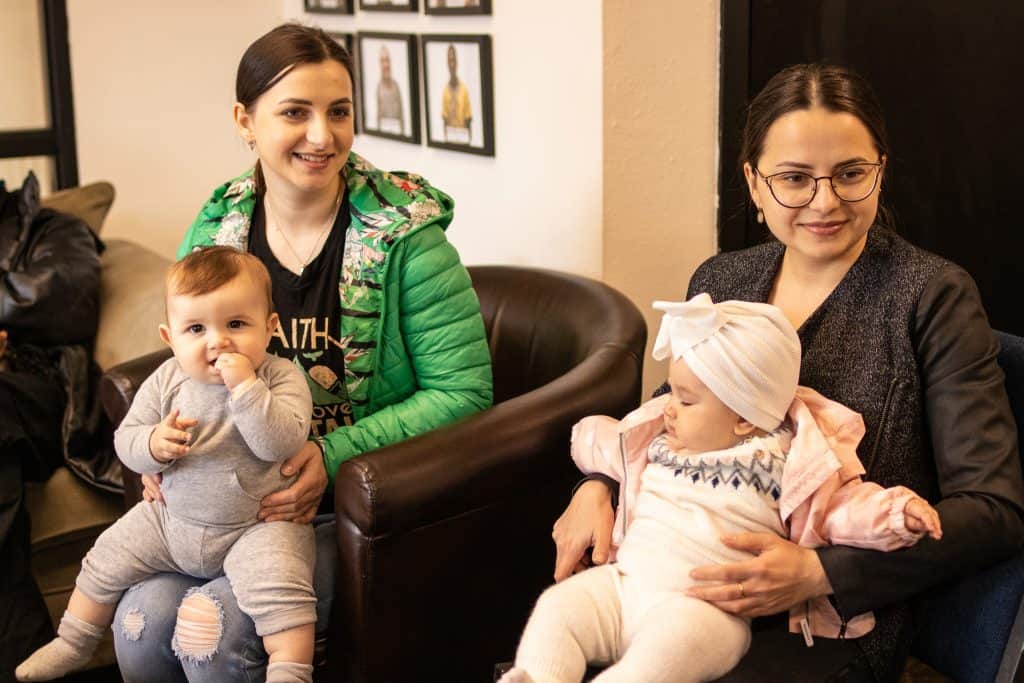
The war in Ukraine was no standalone event — years of political tension and a complicated history foreshadowed the crisis. Russia-Ukraine relations have been generally tense since Ukraine left the Union of Soviet Socialist Republics in 1991. In 2014, Russia capitalized on the political instability of the Ukrainian Revolution. The subsequent ousting of President Viktor Yanukovych allowed Russia to seize Crimea. The war in Ukraine destroyed vital infrastructure and led to many civilian casualties. These factors served as the trigger for the displacement we see today.
Of the 8 million displaced people outside of Ukraine, approximately 5 million have received temporary protection or similar national protection, according to the UNHCR. This means that UNHCR doesn’t legally recognize the majority of Ukrainians as refugees. Thankfully, as the city of Kyiv became safer, the UNHCR was able to repatriate over 4.5 million Ukrainians back to their homes.
Afghanistan
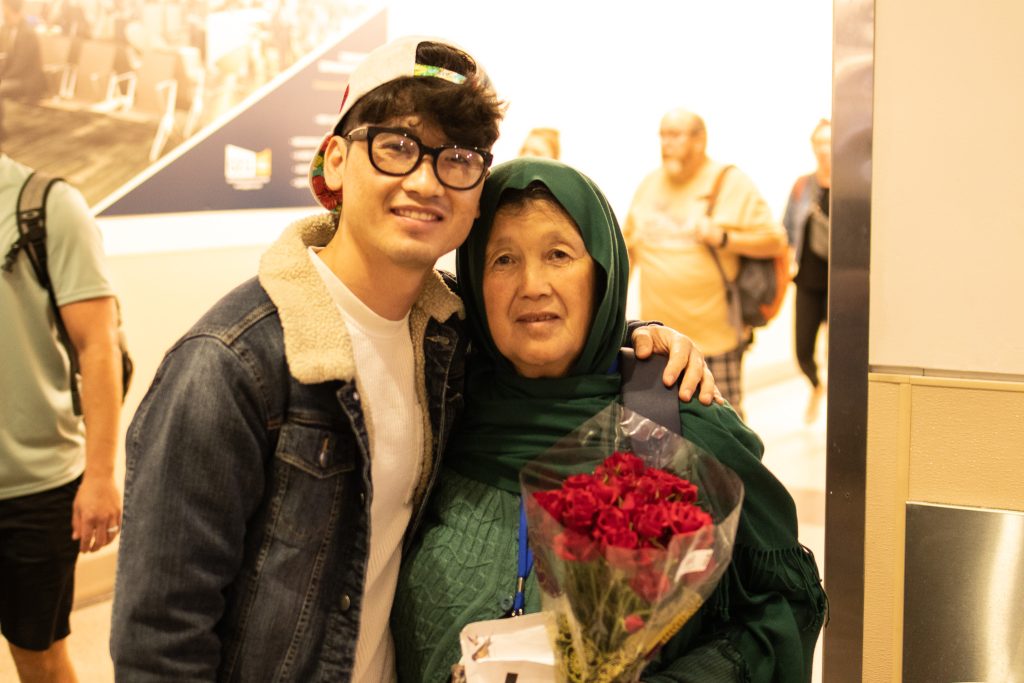
While the recent US withdrawal from Afghanistan in 2021 started the latest displacement crisis in that country, many prior factors had made the region unstable.
Afghanistan’s history is complex, and there are approximately 14 major ethnic groups within the country, leading to a unique system of governance while holds its own tensions.
As well, World Food Programme reports show that over half the population faces food insecurity and acute hunger. Afghanistan is the largest opium producer in the world and therefore faces many issues with drug trafficking and crime. Once the US withdrew and the Taliban again took control of the country, many citizens began to face persecution once more.
World Relief Spokane has been fortunate to support many Afghans throughout the last few years. In this blog post, Ibadullah Rasoli recounts his journey from Kabul to Spokane.
Why are displaced people important to our communities?
What does all of this have to do with us here in the United States? When this hardship takes place so far away from our communities, it seems difficult to understand why it is important that we support displaced people.
Supporting refugees and migrants is integral to American history and culture.
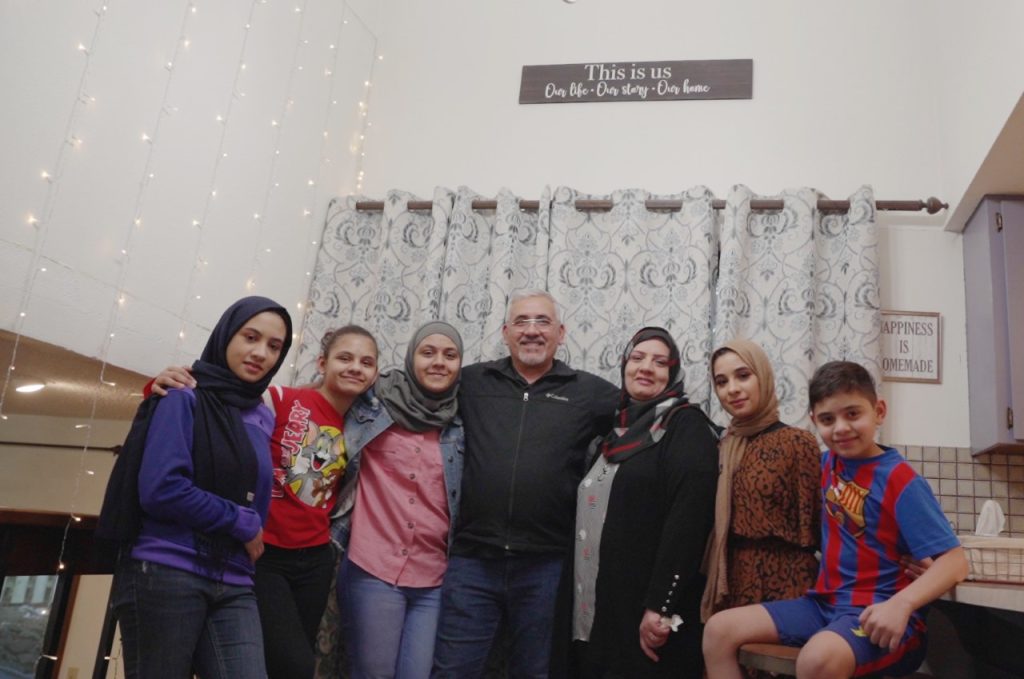
The United States is a country built on immigration. Cross-cultural understanding and collaboration are foundational pieces of American values. Today, approximately 44.8 million migrants live in the United States, making up 13.7% of the population. The United States has resettled over 3 million refugees since the Refugee Act was passed in 1980. Migrants deepen and enrich American culture and its diversity of experience, language, food, and customs. A study by the International Institute of St. Louis shows that refugees help improve cross-cultural understanding. They also help locals appreciate cultural diversity and see the shared values and beliefs across different cultures.
Refugees and migrants support local economies.
In 2017, the U.S. government conducted a study that found that refugee contributions exceed the initial cost of resettlement. From 2004-2015, the government spent $206 billion on refugees. During that period, refugees generated over $269 billion in tax revenue. It’s also important to note that refugees have a strong entrepreneurial spirit. Refugees are twice as likely to start a business than regular taxpayers.
We have a spiritual duty to be in solidarity with the oppressed and marginalized.
Jesus built his ministry on the principle of radical inclusion, of empowerment for the most vulnerable in society. He taught us that to fully capture God’s love, we have a duty to uphold the dignity of such people. Being in touch with God’s love means loving the stranger and the foreigner. Regardless of how far away a suffering community might be, we still have a duty to support them.
He makes sure that orphans and widows are treated fairly; he loves the foreigners who live with our people, and gives them food and clothes. So then, show love for those foreigners, because you were once foreigners in Egypt.” — Deuteronomy 10: 17-19
I was hungry and you gave me food, I was thirsty and you gave me drink, I was a stranger and you welcomed me.– Matthew 25: 35
The end of displacement begins with you.
Here at World Relief, our mission is to support people who have been forcibly displaced. Sometimes that means action in our local community, helping refugees adjust to life in America, teaching them how to use the bus system, or finding them work. Sometimes that means tackling poverty or malnutrition abroad and stopping displacement at the source.
World Relief relies on the generosity of its donors and volunteers. For World Refugee Day, please consider supporting our efforts.

Antoine Herrbach is a 2023 Summer Intern for World Relief. He is a Senior at Gonzaga University, studying Political Science, History, and Economics.
BEYOND 90 DAYS: Intensive Case Management
By Cade Hajovsky, Fall Intern
What Is Intensive Case Management?
Not all newly arrived refugees can become self-sufficient and independent in 90 days. Many immigrants need more support. Through our Integration and Wellness department, World Relief provides case management to those struggling to get established. Case managers help clients navigate the health care system, legal resources, housing and financial management services, educational services and more. They connect clients with other agencies who provide direct services, while coaching them in accessing services and resources. The goal is to empower clients and connect them with support systems (physical, emotional, social) as they adjust to life in America.
Volunteers can be a significant help in this process by walking alongside families as they figure out their tight budgets, work on their language skills, learn the culture, and build a network of support. They often bring a wealth of experience and knowledge and still report back that they also learned and grew through the experience.
The purpose of Intensive Case Management is to offer services and help from World Relief beyond the initial 90-day resettlement program — up to 5 years after arrival. Intensive Case Management is one of three teams in the Integration & Wellness Department, which serves hundreds of clients each month.
Integration & Wellness
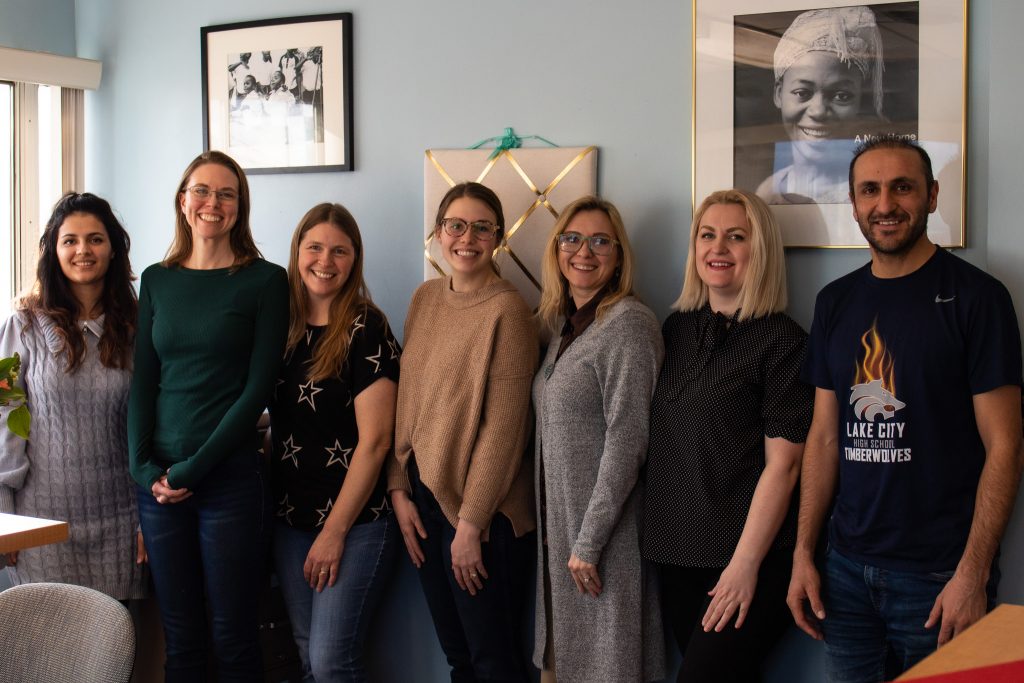
Andrea Simpson, Director of Integration & Wellness, has been at World Relief since 2008. She began her work as a case manager within the resettlement department, worked her way up to supervisor, and now serves on the leadership team. Within her role, Andrea oversees three teams: Intensive Case Management; Education Services and the Friendship Center/Community Ambassador Team. Intensive Case Management encompasses two programs: Preferred Communities (PC) and Promoting Refugee Integration, Mobility and Empowerment (PRIME).
PC is a program that receives federal funding and supplemental state funding. PRIME is funded by the state. Each of these programs consists of employees who work one-on-one with refugees and their families to overcome challenges. Generally, each case manager works with 10-15 clients at a time.
The time that clients stay within Intensive Case Management programs varies, but the goal is to provide support to our new community members for as long as needed. The case managers in the PC program have a 1-2 year track with a minimum of six months. In PRIME, there is no definitive timeline, a refugee could re-enroll every year until they are no longer eligible (five years). This is a rarity, however, as the purpose of Intensive Case Management is to move clients toward self-sufficiency. Long-term engagement generally only happens if there are extenuating circumstances that would cause someone to stay in PRIME for a longer amount of time, typically medical needs.
In addition to the PC and PRIME programs, Andrea also oversees the Education Center. The Education Services team launched last year and is currently hosting small group education classes on finances, computer skills, housing, and more. Morella Perez-Suels, Manager of World Relief Education Services, believes strongly in working to understand the needs of clients first and then craft educational programs to help fill the gaps.
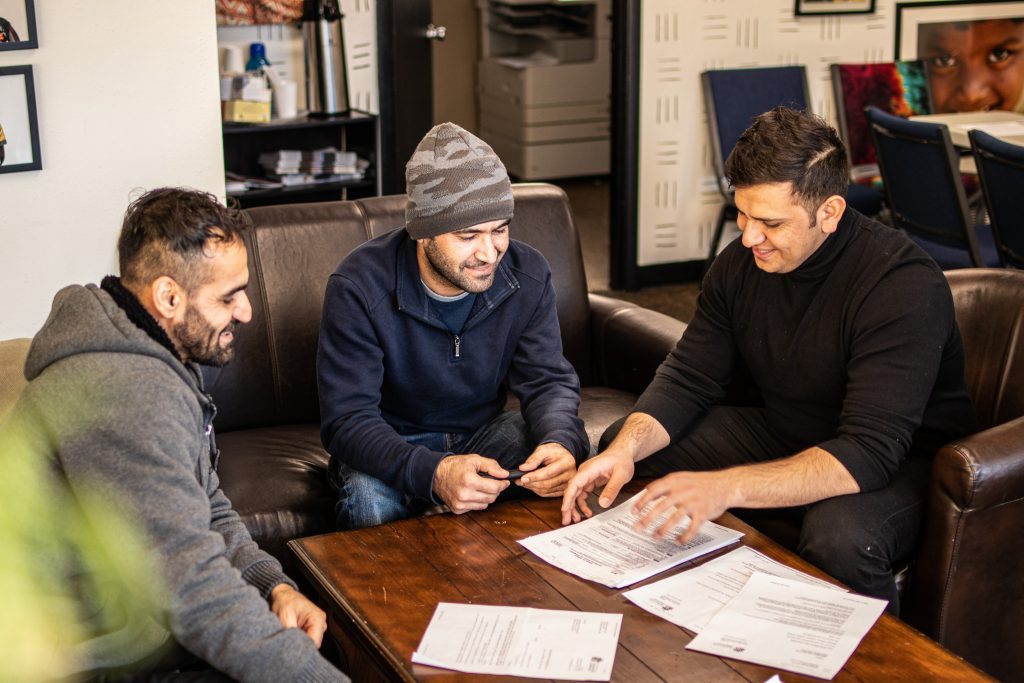
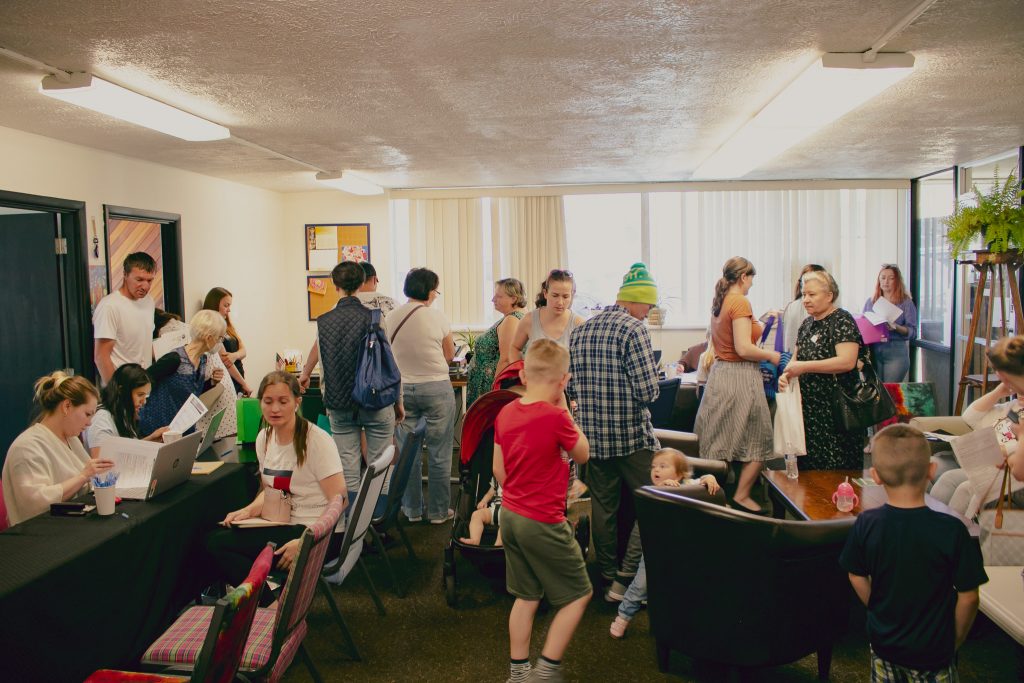
The Friendship Center is home base of the Community Ambassador team, a program birthed during COVID which has become an invaluable means of connecting with the various immigrant groups within Spokane. Community Ambassadors are already leaders within their individual communities, so they can serve as a bridge between World Relief and the various immigrant groups — letting World Relief know about the needs their community is experiencing and relaying word about available resources back to the communities. Ambassadors help in a wide variety of roles — interpreting and translation, helping to fill out paperwork, delivering food boxes, taking children on field trips to the roller rink or Mobius, connecting families with the Farmers Markets, etc. Melissa Stipek, who oversees the Friendship Center and the Community Ambassador program, describes the Friendship Center as “the happy side of World Relief.”
“I believe for people to be able to flourish, they need to be happy. When people are happy, their mind clears, and they are open to new ideas.” — Melissa
Client Challenges
New immigrant families face a host of challenges, such as language, housing, financial management, schooling, transportation, childcare, healthcare. The first focus area of Intensive Case Management is helping families address these obstacles so that they can stabilize and not be in constant crisis. Secondly, they help refugees build a firm foundation and move forward into integration and empowerment.
The top two challenges case managers address are housing and finances.
“When families first arrive, they do not have very many options for housing as they do not have rental or credit history, which often leads to them not getting their ideal housing,” Andrea said. “Also, with housing prices going up, there have been issues with families not being able to find affordable rent.”
Families who arrive through World Relief’s resettlement programs are initially paired with the resettlement teams who diligently work to find them housing. Intensive Case managers get involved with housing later down the line and generally work with families looking for their second home, not their first home.
In addition to assisting with housing, case managers help clients budget, apply for jobs and programs, and teach them how to connect with different resources.
“Intensive Case Management is necessary because if you picked up tomorrow and moved to another country, you would have lots of lessons to learn,” Andrea said. “How do I get a phone? How do I get from here to there? How do I pay for this? What if I want to buy a house? How do I support my children? Everything you want to do, you have to learn anew.”
As soon as they arrive in the United States, refugees are learning how to navigate life in the United States, which includes the need to understand technology. The digital climate of the U.S. requires people to know how to navigate the internet and complete tasks online, such as applying for a job. For someone who has never used a computer before, this can be a very difficult transition. Through the Education Center, immigrants are learning how to navigate the online world.
Through help with housing, transportation, education and finances, the main goal of the Integration & Wellness department is to help refugees gain confidence and get to a point where they feel comfortable navigating life without as much support from World Relief.
Self-Sufficiency
The mission of World Relief is not simply to make sure a refugee is in a home and has a job; it is to walk with them until they are in a position to flourish in their new home.
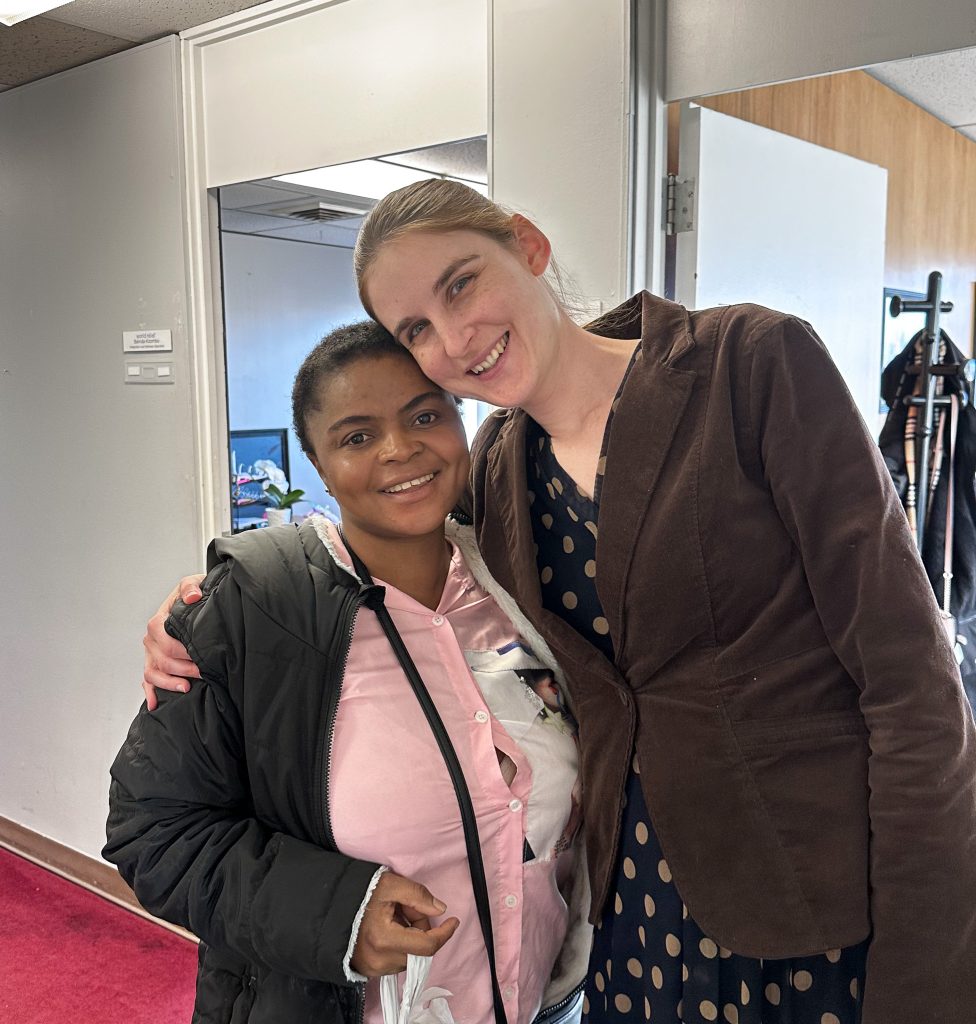
“Integration and Wellness is all about empowerment,” Andrea said. This process is executed through setting goals that help refugees build stability.
While a refugee can enter into Intensive Case Management as soon as their time with the resettlement department is over, this is not normally the case.
“Everyone hits that wall, usually after they have been here for six months, where they say, ‘This is not what I expected,’” Simpson said. “’The people, the food, the housing, the job, it’s not what I expected.”
When this time comes, the Intensive Case Management team welcomes refugees with open arms and works diligently to assist them in their struggles. Stability is not built overnight; it is a process of gaining confidence, skills, and experience that lead to this sense of empowerment for refugees.
At World Relief, we never want refugees to feel alone on this journey. We work to provide them with the resources and connections they need to succeed and feel empowered, and the work of Intensive Case Management greatly contributes to this mission.
Economic Empowerment: Immigration and Jobs
Ronald Reagan once famously said: “The best social program is a job.”
It might be overly simplistic, but he’s not wrong. In our experience, the refugees and new arrivals coming to the United States through World Relief very much want to work. They have come for a better life which includes finding meaningful work. Those coming from refugee camps have not been allowed to work – some for decades – and are eager to use their skills to build a life in their new home.
Jared Booker, Director of Economic Empowerment at World Relief Spokane, described his department’s role like this: “We don’t simply find someone a job. We encourage our clients to dream again. A job can bring dignity, confidence, and the ability to be a positive part of something much larger than themselves. These are all things that have, for the most part, gone dormant within our clients.”
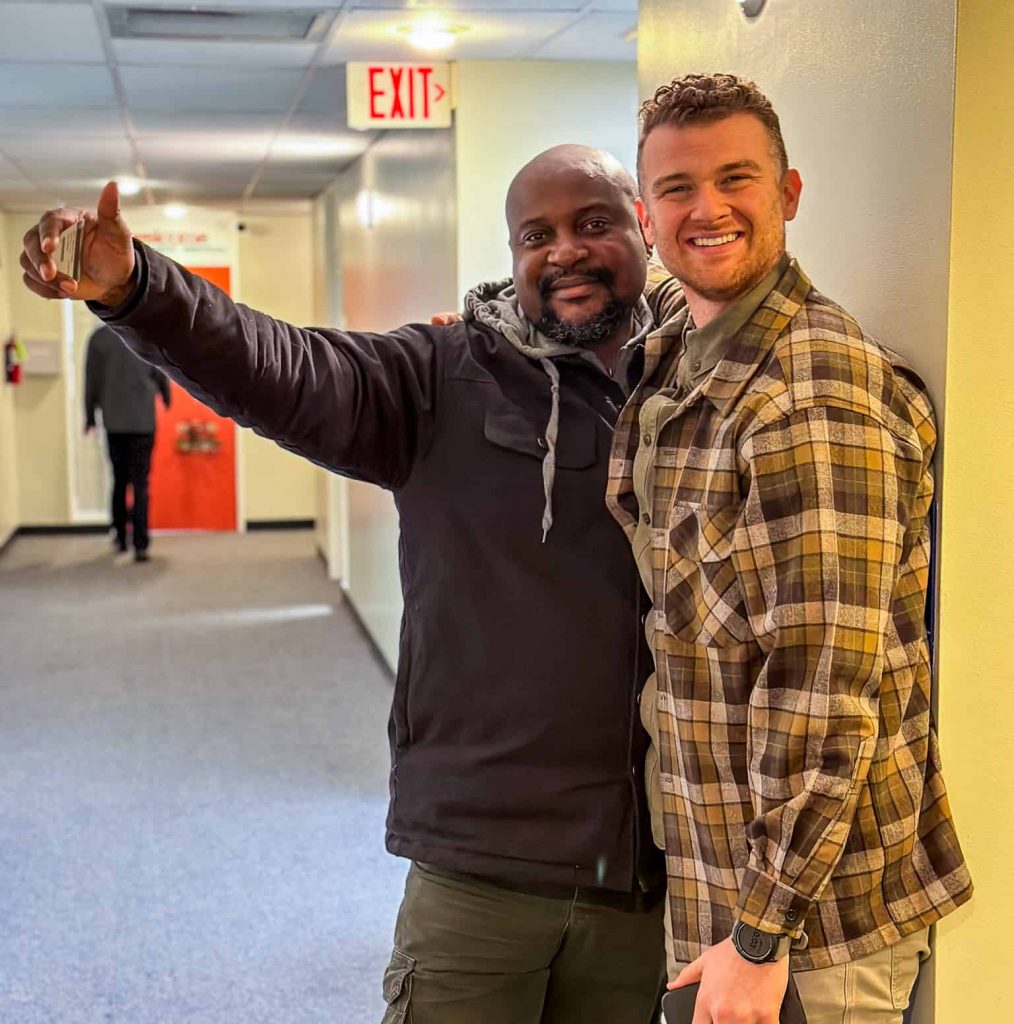
World Relief’s goal is to help each new immigrant family find employment for at least one adult in the first 90 days. The first job may be an entry-level position while the clients work on their language skills, navigate transportation and develop skills. Clients are welcome to come back at a future date when they are ready to pursue a more career-oriented position. Job Readiness Workshops provide clients with information and mentoring on how to find and maintain meaningful employment.
Currently, the workshops run three times a week with different days devoted to different groups of people so that interpreters can be available as necessary. Clients learn both soft and hard skills – matching your skills to a job, goal setting, resolving conflict, teamwork, interviewing, etc.
Economic Empowerment specialists each carry a workload of approximately 60 people with whom they are working to find employment. Specialists interview clients, manage expectations, help with resumes and applications, set up interviews and coach/encourage clients along the way. They work with a variety of employers from manufacturing to hospitality: HDT Global, Starbucks, Panda Express, Davenport Hotels, and K-L Manufacturing, to name a few.
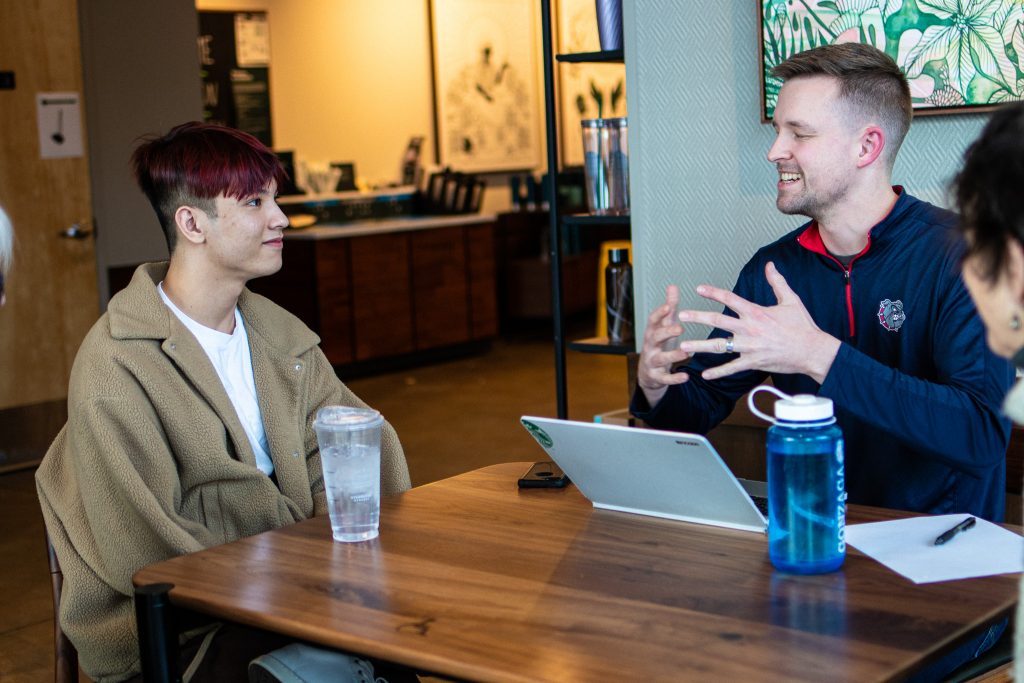
Two-Way Benefit
Sometimes people use employment issues as an argument against immigration: “They’re taking our jobs.” Or… “They’re just going to end up on welfare and drain all our resources.”
The facts, however, do not support either claim:
According to Labor Secretary Martin Walsh, “We don’t have enough workers in the United States of America to fill all the job openings that are out there… The threat to the American economy long-term is not inflation, it’s [about] immigration. It’s not having enough workers… America has always been a country that has depended on immigration.”– Wall Street Journal
“While the perception persists that people migrate to milk America’s social safety net, the reality is that almost all immigrants come to the United States to work. Immigrants overall are significantly more likely than native-born US citizens to be employed.” – Welcoming the Stranger
World Relief’s Jared Booker put these facts into context: “We don’t buy into a sense of employment scarcity. A job for a refugee or immigrant is not one less slice of the pie for you or me. The reality is that, as we welcome newcomers, newcomers also know how to make pie, and there’s more pie for everyone.”
Enriching Our Lives
“They are enriching our lives and expanding our understanding of others.” – Jayne McLaughlin
One local employer discovered that new immigrants not only make great employees, they add unexpected value.
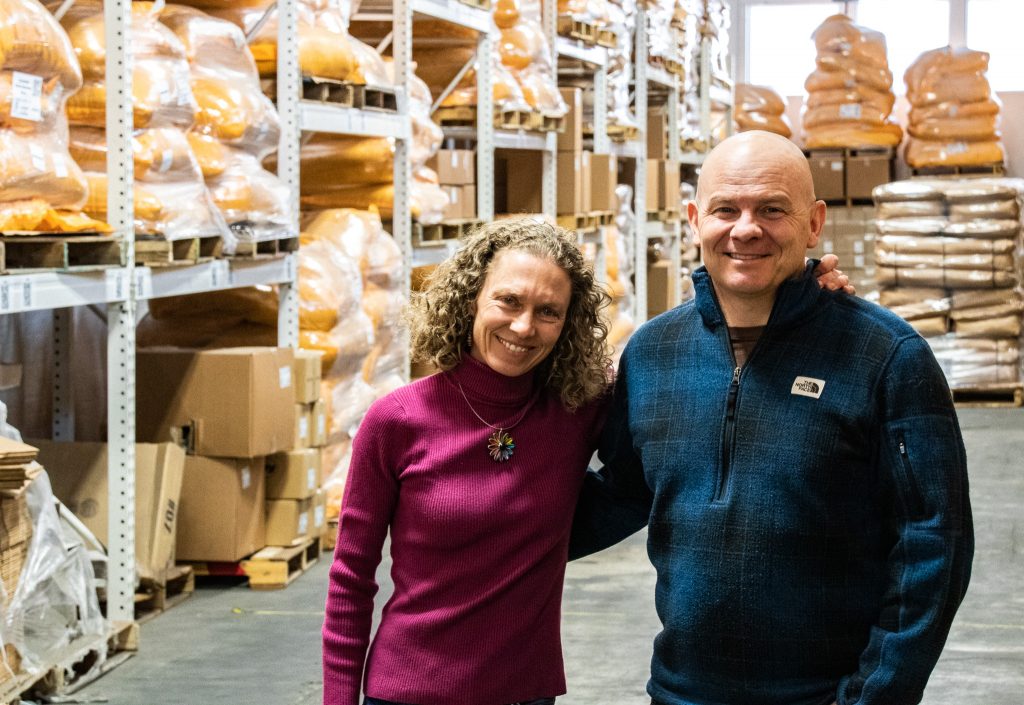
Executive Director Christi Armstrong, who started her career with World Relief in 2013 with the employment department, remembers her first encounter with Waterglider:
“When I got my first clients on my caseload, they were all single Sudanese men. My job was to help them find jobs. I was looking at the WorkSource website, and I saw this opportunity for Waterglider.” Little did she know what a great partnership was about to begin. “The interview was very short. Sean really liked the guys and hired the two of them together to start working production at Waterglider.”
From then on, “They called me whenever they had positions,” Christi said. “We would do whatever we could to bring other Sudanese people to them because of the language barrier. Gamar and Ibrahim had learned a little more English by then, so they would be able to train other people.
“I think what I love most about Sean and Jayne is that they saw these guys – not as a deficit because of the language barrier but as assets because of their work ethic. They’re just go-getters. They came here to work. They came here to get a better life. Sean and Jayne picked up on that really quickly and so they were more than willing to give them a chance.”
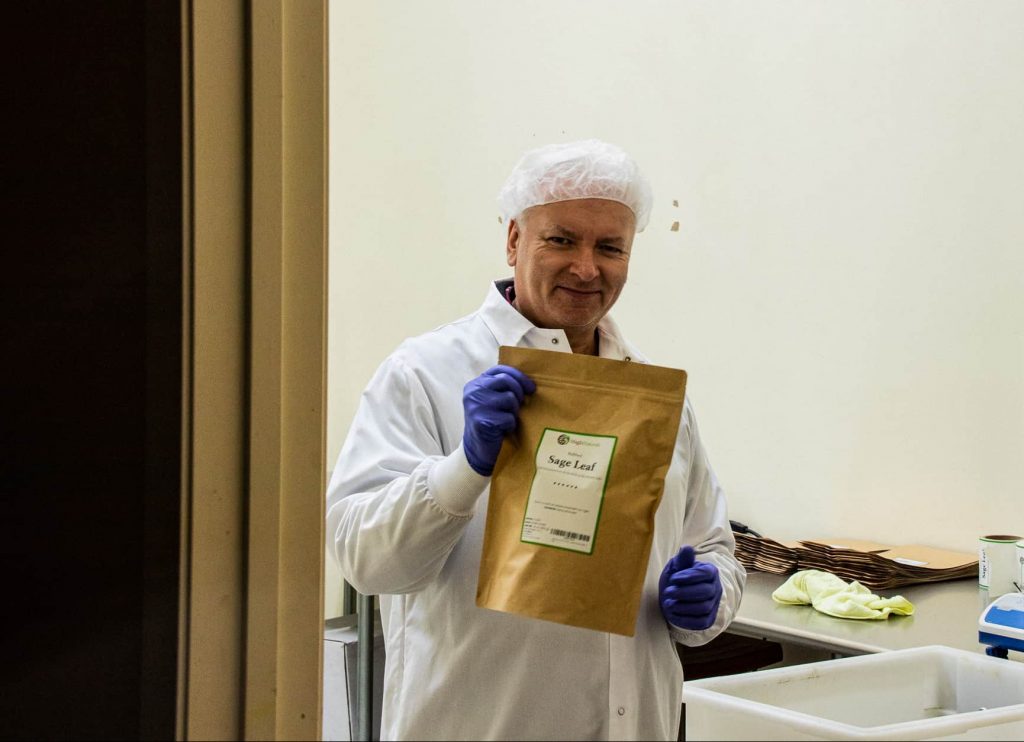
Sean and Jayne are still hiring refugees. Currently, they have two employees from Ukraine, one from Thailand, one from Burma and Rose, from Burundi, who makes all of the bath bombs.
“All our refugee employees have been really hard-working, very nice people, very grateful, sincere, friendly, nice to have around,” Jayne said. “They are enriching our lives and expanding our understanding of others.”
5 Things You Should Know About the Earthquakes in Turkey and Syria
Early in the morning on February 6, massive earthquakes hit Turkey and Syria. For many of us who live thousands of miles away from the devastation, it can be hard to imagine the profound scale of loss — and even harder to know how best to respond.
And yet, if you’re like us, your faith compels you to respond.
At World Relief, our mission is to empower the local church to serve the most vulnerable. When natural disasters like this one occur, those who are already in vulnerable situations are put at even greater risk. By responding together, we can extend the love of Christ to those who are suffering in their greatest time of need.
That’s why we’ve shared five things you should know about what’s happening in Turkey and Syria, why we at World Relief are responding and how you can join us in praying for and serving those who are suffering.
1. How widespread is the impact of the earthquakes?
The earthquakes struck in the early morning hours in a region that has not experienced a major earthquake in over 200 years, leaving residents little prepared. As a result, the devastation has been widespread and severe.
At the time of writing, an estimated 36,187 have died in Turkey and more than 5,800 in Syria — and these numbers continue to rise. More than 5 million people across Syria are now in need of shelter while nearly a million more men, women and children are now homeless in Turkey as a result of the earthquakes. Basic infrastructure, including power and water, has been completely demolished in some areas.
The earthquake’s devastation is further compounded by freezing winter temperatures and, in Syria, decades of civil war have left residents especially vulnerable.
2. What are the greatest needs and how is World Relief responding?
As those impacted grapple with freezing temperatures, decimated infrastructure and profound loss and trauma, the greatest immediate needs include shelter, water, power, blankets, non-food and sanitary items and psychosocial counseling.
World Relief is responding on the ground through long-standing, trusted partners, including Tearfund Germany and the Integral Alliance. Our partners are connected with local churches and organizations in Turkey and Syria who can more quickly deliver aid — especially in hard-to-reach regions or where international aid may be restricted by governing authorities due to protracted conflicts.
Our local partners are working especially hard to provide assistance to the most vulnerable, including the elderly, children and persons with disabilities.
Thus far, our response efforts have included:
- Establishing mobile kitchens and distribution centers for food, water, hygiene supplies, emergency shelter, heaters, batteries, tools and more
- Operating mobile hygiene trailers that offer toilets, showers and washing machines
- Facilitating a kids club and trauma counseling center for children impacted by the disaster
- Providing mobility devices such as wheelchairs, protheses and walkers to those who need them
To stay up-to-date on how we’re responding to this and other crises around the world, sign up for our mailing list, here.
3. What will happen after the initial response?
Natural disasters on the scale of what we’re seeing in Turkey and Syria affect every facet of life. Responding immediately is essential to ensure the survival and safety of as many people as possible. At the same time, we at World Relief understand that rebuilding and restoring what has been broken — whether infrastructure or lives — takes time and commitment.
That’s why we’re beginning conversations with our trusted partners in the region to determine how we can best come alongside local communities so that they not only survive the current crisis, but can flourish and thrive in the future. In places like Syria, which have already been wracked by unimaginable conflict and loss, this commitment is all the more important.
4. Has World Relief worked in the affected region before?
Yes! World Relief formerly had programming in both Syria and Turkey which we transferred to our partners at Tearfund Germany in 2019. We continue to have a strong relationship with Tearfund Germany, allowing us to respond quickly and effectively through our partners who are still at work in the region.
Additionally, World Relief has been helping Syrian refugees resettle in the U.S. for over a decade. Members of the Syrian community in the U.S. have become our coworkers, neighbors and friends. We are grieving and praying alongside them at this difficult time.
5. How can I help?
- Pray: As in all things, we first turn to prayer. Pray for those who are still missing to be found, for the injured to be healed, for the hungry to be fed, for the cold and weary to find shelter and for the grieving to be comforted. Pray also for those responding to do so with wisdom and endurance.
- Give: You can rush help to Turkey and Syria by giving today. Your donation will support our partners at work in the region, ensuring more help can reach more people in this time of great need.
- Share: As the news cycle moves on to the latest headlines, you can help keep Turkey and Syria in the prayers of your friends, family and neighbors by sharing what you’ve learned in this blog.
One Year Later: Erika’s Story
When Russia invaded Ukraine in February last year, Erika Symonenko was working as a salesperson for a garage door company. “I went to Germany right after the war started to help some of my family members [who had fled Ukraine].”
When she got back, however, she was desperate to do more.
Being Part of the Solution
“I couldn’t focus at my old job. I was not able to work. My co-workers understood that I will not be able to focus or do anything unless it’s involved with helping refugees… All I could do was check the news, and I knew that I shouldn’t, but I have to know what’s happening, so I kept checking the news and I want to help. The worst feeling is that you are safe when your friends and your church and your family are getting bombed. You’re feeling guilty. So it was a very depressing moment, and the first thing that comes to mind is the only way that you will be able to help is when they start coming here. So when people start coming here, World Relief is going to be the first to respond.”
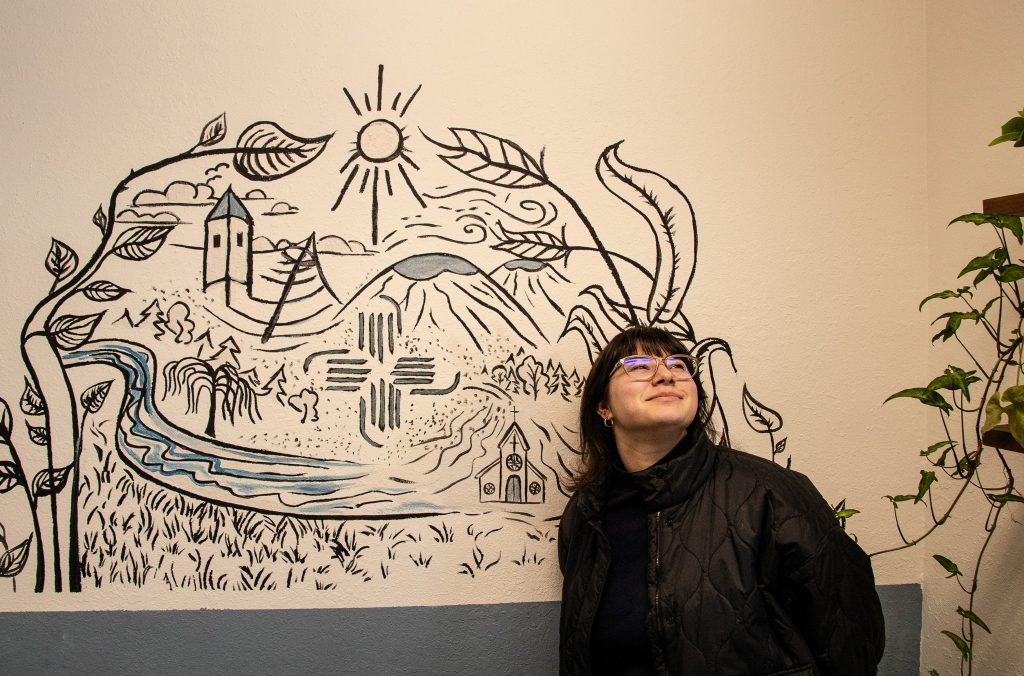
Erika decided she needed to get a job at World Relief. Her old employers offered her a raise to get her to stay. “They would have paid me more than I get here, but in the end, this is what I needed to do.” She started as the housing specialist in April of 2022 .
“The worst feeling is that you are safe when your friends and your church and your family are getting bombed.” – Erika
Immigration in 2008
Erika herself came to the US from Ukraine with her family in Summer 2008. Her story reflects the longstanding, complicated relationship between Russia and Ukraine.
Her family’s church, Irpin Bible Church, was very involved with the Orange Revolution in 2004, a peaceful revolution to protest the fraudulent presidential election in the same year when the Russian-backed candidate (Viktor Yanukovych) was awarded the presidency even though his opponent (Viktor Yushchenko) had received the majority of the vote. Irpin Bible Church, located only 20 miles from Kyiv, provided food, tents, coats, a place to sleep and other resources to the protestors.
“During the whole situation,” Erika said, “we would often be without light or heat because that would come from Russia. They would cut off our resources. We couldn’t do homework. We had to use candles.”
Yushchenko, whose campaign color was orange, was eventually awarded the presidency in a recount in early 2005.
“The protests of late 2004 initially succeeded in preventing Kremlin-backed candidate Viktor Yanukovych from stealing the Ukrainian presidency and made possible the election of his reformist rival, Viktor Yushchenko. However, Yushchenko soon found himself beset by infighting and was unable to lead Ukraine decisively towards Euro-Atlantic integration during what proved to be a hugely frustrating five-year term in office. This paved the way for Yanukovych to mount an unlikely comeback and win the 2010 presidential election race.” (Atlantic Council website)
Erika’s parents became very concerned about their children’s future. “They realized there will be no future for their children to build, and since it is so difficult to get an education and get it transferred to America, they decided they will move here (to the US) as soon as possible.”
Another significant factor in their decision to immigrate to the US was the fact that Erika’s youngest brother has cerebral palsy. “They had friends in Germany and several other countries, but America is the number one country for people with disabilities, so my parents decided it is best. There is so much he receives here that he would not have gotten in another other country.” (Erika’s brother is 21 now and attends Spokane Community College.)
A Rough Start
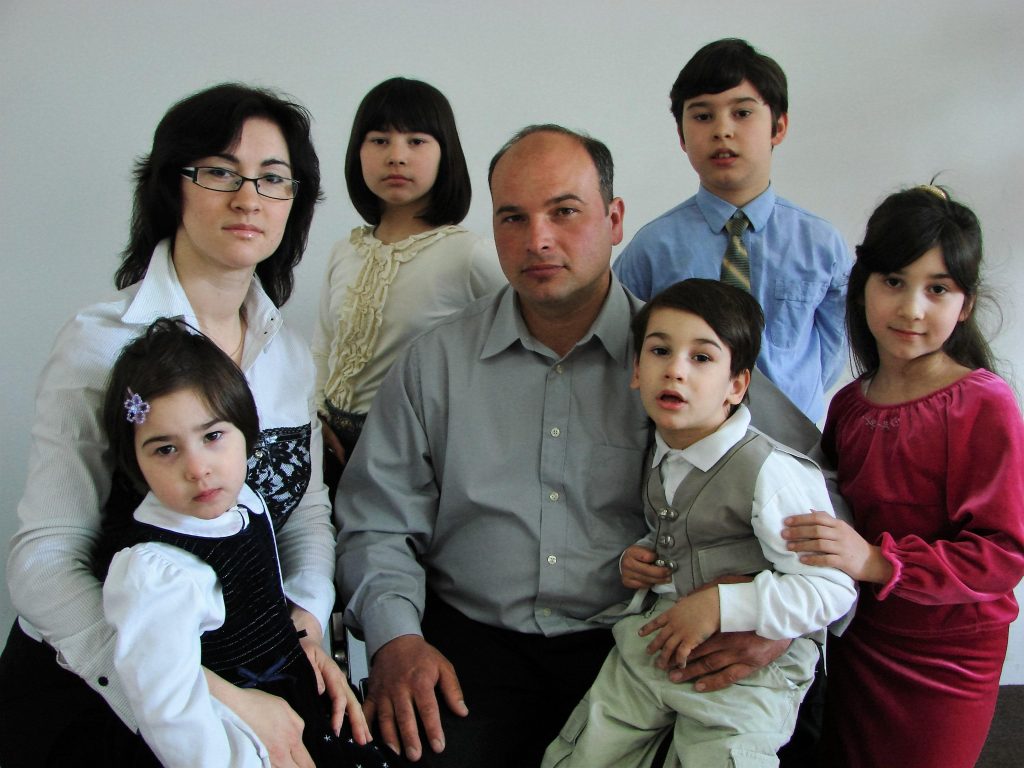
Erika was 11 when they arrived. “They put me in 7th grade because there was lots of confusion… They give me my class schedule, which I had no idea how to navigate, and for some reason, there was no one to go with me to the school, so they just randomly put me in class, and the lady who was supposed to help me navigate the first couple of days, she had her Spanish dictionary with her, and she kept pointing at it, and I would just ignore. And she thought that maybe I was just very traumatized or something, and I can’t respond, but within a couple of days, she realized that I just honestly have no idea what’s going on, and she got really upset and angry, and she kept pointing fiercely in the dictionary, trying to figure out when my birthday is and things like that, and why am I not putting my name at the beginning of the worksheet paper. Later, I found a Ukrainian boy, and I asked him to come up to her and tell her that I don’t speak Spanish, and even though I have dark hair and dark eyes, it doesn’t mean that I am Hispanic.
“We laughed a lot about that later, and now, it’s an ongoing joke, but it was very stressful at the moment.”
According to the Spokesman Review, before the war started, there were roughly 30,000 Ukrainian Americans in Spokane County, the vast majority “Christian refugees who immigrated to the U.S. to escape religious persecution.” A second article estimates 2,500 more have arrived since the war began.
New Arrivals
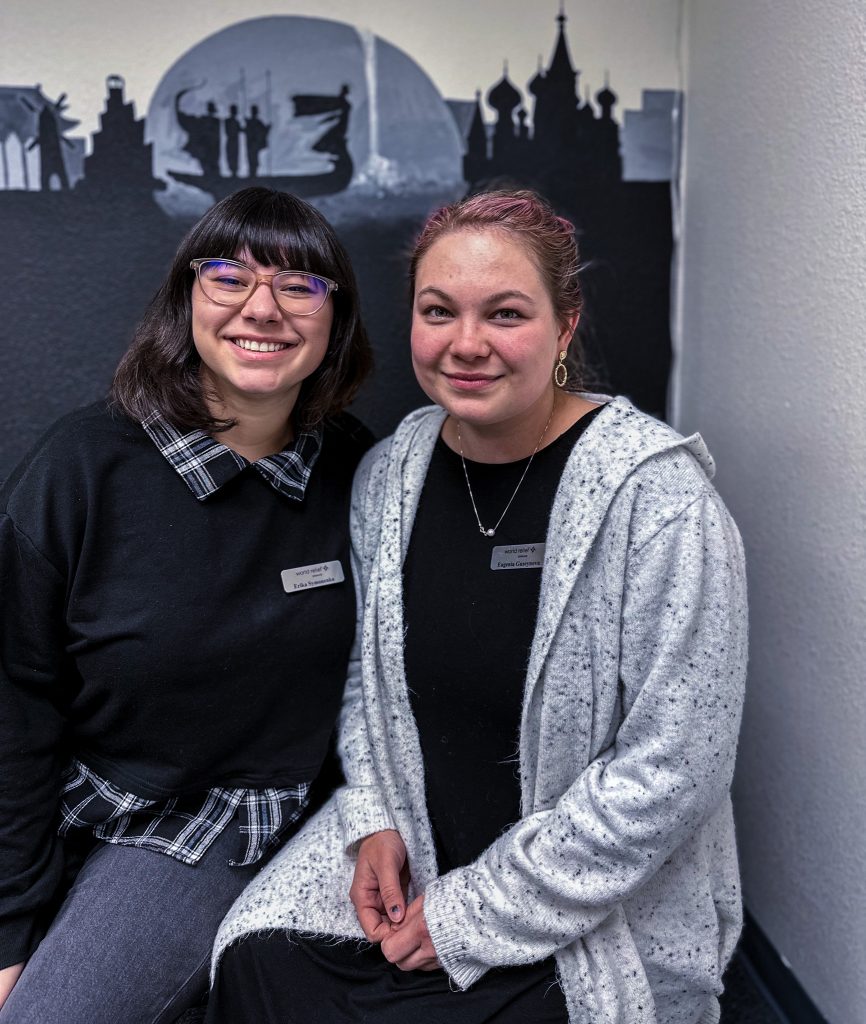
At World Relief, Russian-Americans and Ukrainian-Americans work side by side without conflict. Erika’s roommate, Eugenia (pictured right), is from Russia and also works at World Relief as the pre-arrival coordinator. She knows who is coming when and arranges for each new arrival to be greeted at the airport.
World Relief is able to help the newly arriving Ukrainians with job search, employment and housing stabilization.
“They are also coming here to get information and education,” Erika said, “because everyone when they hear the word ‘refugee’ in Spokane, the first thing that comes to mind is World Relief… Our signs says, ‘help the vulnerable,’ and they don’t have to be registered with World Relief to be vulnerable. Lots of Ukrainian families that come here, we refer them to resources, explain how to find housing, and in the Friendship Center, they have resources.”
Erika has also recruited her mom, Olga, to help as a translator.
“I always wanted to volunteer, but now, it’s time when you need help the most. I see the war in Ukraine; there’s lots of Ukrainian people. I’m trying to help them by myself, but I think it’s just better to join the community who’s doing it right now, and it might help even more.”
*This is what strikes us again and again, with refugees in general, but particularly with the crisis in Ukraine. The Ukrainians who came to the US before the invasion go out of their way to help those who have fled since – going to Mexico to help people cross into the US and register as parolees, taking on private sponsorship, going to Germany and Poland to help people fleeing Ukraine, providing food, water and other necessities to their countrymen as they wait at terminals and temporary shelters. Erika’s mother, Olga, and her sister, who lives in Germany, have been working together since the war broke out to get friends and family first to Germany and then to the US.
